If you have ever watched Japanese anime involving school life, or love stories, such as ‘Your name’ etc., I’m pretty sure that you have already seen yukata (浴衣). Yukata is Japanese traditional clothing and as a Japanese, I can guarantee you that most Japanese have put on a yukata at least once in their life. Myself, I remember attending a class which taught us how to wear the yukata properly at high school.
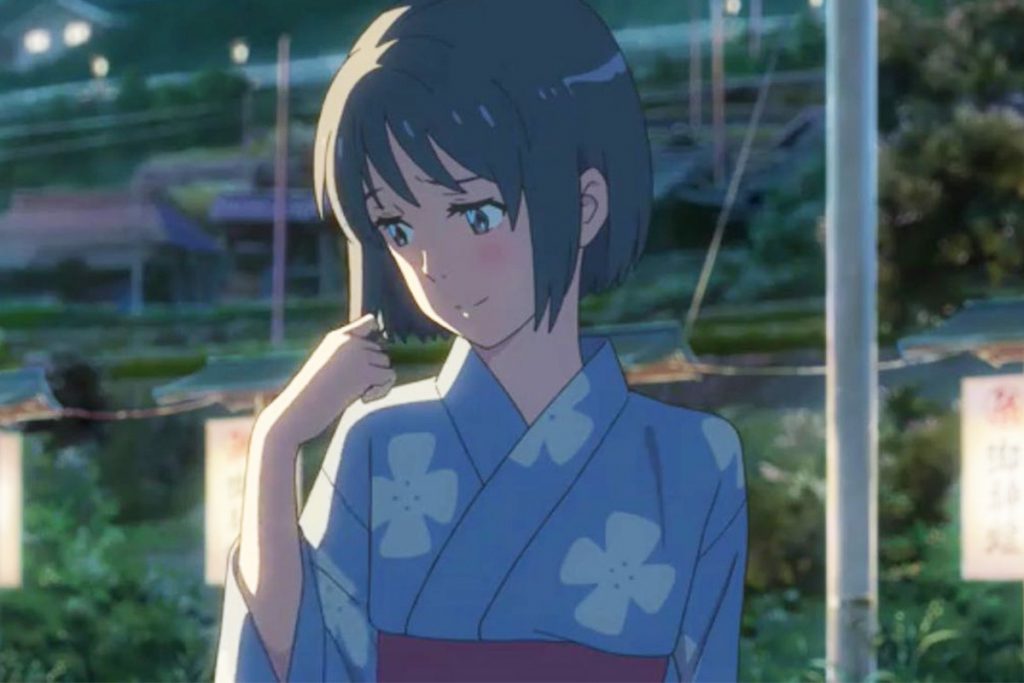
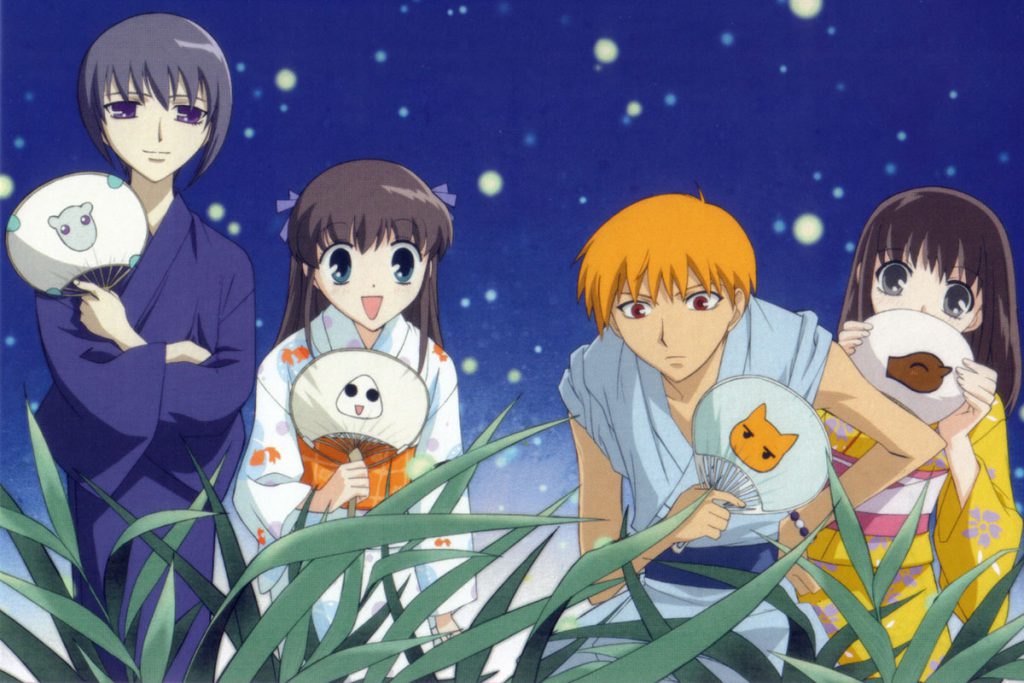
Yukata are often confused with Kimono (着物), which is also Japanese traditional clothes, however, the difference between Yukata and Kimono is huge. This time, I’m gonna explain the difference and yukata patterns. Also, for those who are interested in wearing a yukata, I will tell what you need to get, yukata rental services, how to wear yukata and finally things you should know about yukata.
YUKATA VS KIMONO
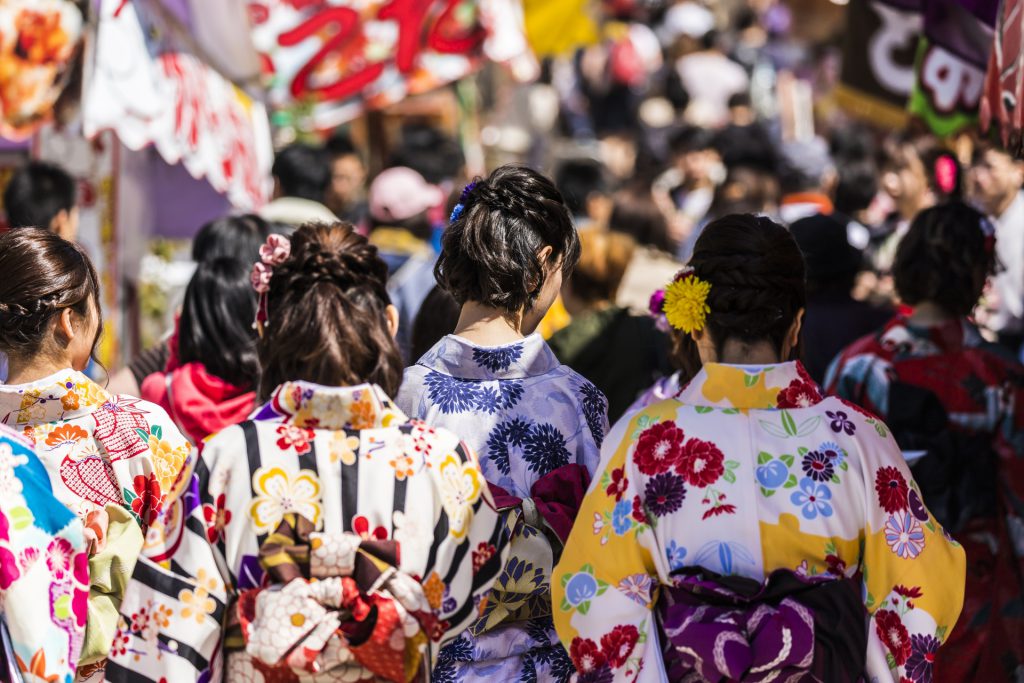
I put the title “Yukata vs Kimono” because so many people look for it but honestly, it’s a bit ridiculous for the Japanese to fight between Yukata vs Kimono. To begin with, Yukata and Kimono have huge difference like boats and sandals.
WHAT’S YUKATA?
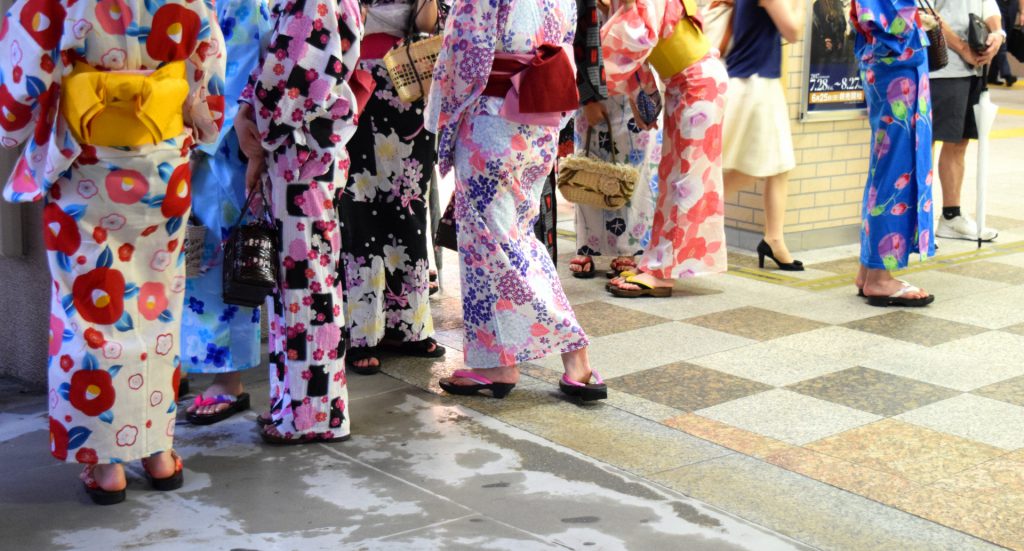
Let’s get to the point. So what is yukata? Again, yukata is a Japanese traditional clothing which is worn only in summer. Yukata are usually made of cotton or synthetic fabric and are very light. Although yukata is a long-sleeve shirt, it breathes well and is very comfortable.
In general, elderly people do not wear yukuta, it’s for young people and kids. I mentioned that yukata is a symbol of summer, but it doesn’t mean we wear yukata in daily life. We wear it for occasional events such as summer festivals.
I may be biased, but in my opinion, a love story goes like this: wearing a yukata for both female and male gives them the advantage to gain points from their lovers because the yukata makes them specials. This is why so many young Japanese tend to hang out with their friends (including their lovers) to go to the summer festival, wearing Yukata.
In fact, there are many articles which talk about “How to make your lover fall in love with you with yukata”. Japanese are cute, right?
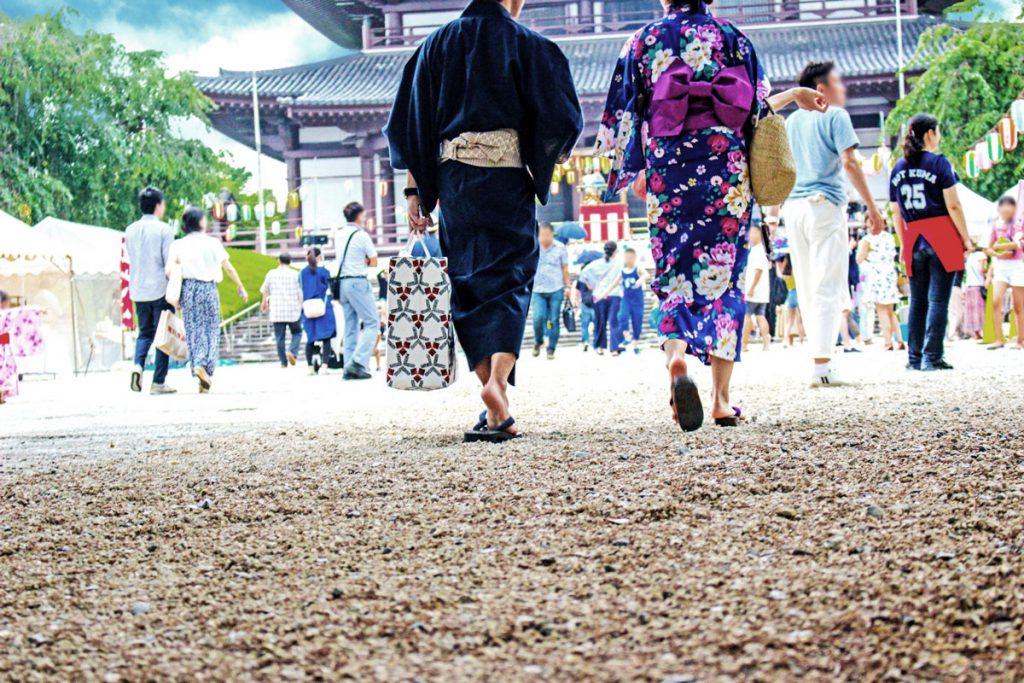
If you go to a Japanese summer firework festivals, you will notice how many couples there are wearing yukata. I can say… Yukata has various roles: not only the meaning of Japanese traditional clothing but also the power of accelerating relationships.
WHAT’S KIMONO?
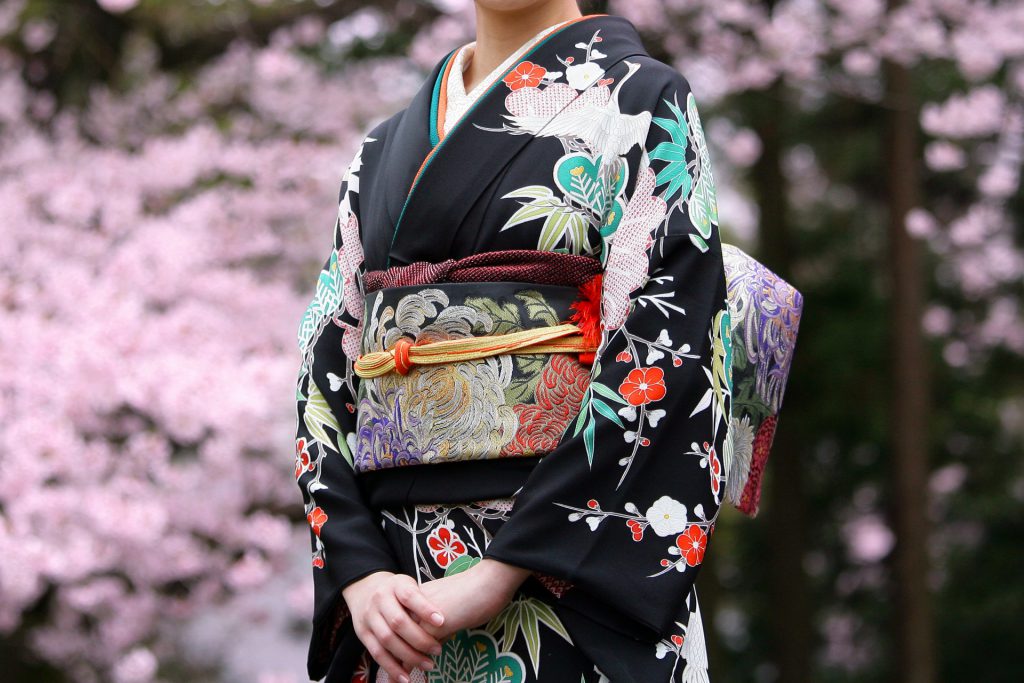
Moving on to the second topic: What’s a kimono? I need to repeat again but kimono is also one of the Japanese traditional clothes. The word ‘kimono’ seems like a new fashion category: long tale jacket/robe in the world but the real kimono is far away from that. As the picture above shows, a kimono isn’t a jacket/robe but the entire outfit. Now let me tell you the difference between yukata and kimono.
- Talking about kimono, we need to wear many layers of clothes inside, not only one cloth like the yukata. This is why wearing kimono is a really tiring process.
- Kimono isn’t seasonal (However because the temperature is super high in summer in Japan, we avoid wearing kimono).
- While yukata is pretty reasonable, kimono is very expensive therefore most Japanese don’t have their own kimono and rent it when they need.
- Wearing kimono is a symbol of high class.
- Wearing kimono isn’t that comfortable, especially for the women. It’s even hard to breathe.
- Because of the fragile material, hemp, we need to be very careful to store kimono.
Kimono is high class and chic. Nowadays, you can find kimono at a cheap price (but you can image, if it’s cheap, the quality is in proportion too…), we still regard kimono as expensive. The average costs is from ¥200,000 ($1,400.87) to ¥5,000,000 ($35,021.85).
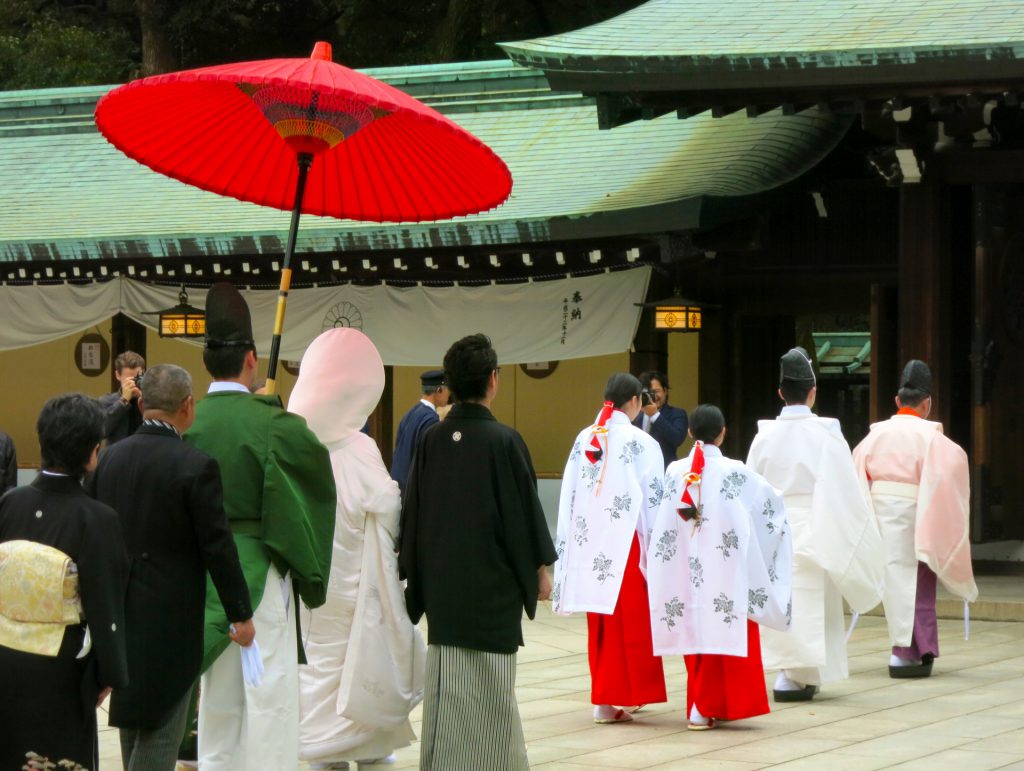
While many Japanese know how to wear yukata by searching on the internet, wearing kimono isn’t that easy. Of course, both yukata and kimono have proper ways to be worn. Although it’s not a big deal if you can’t wear a yukata properly, if you wear a kimono the wrong way, the Japanese consider it’s kind of embarassing.
Often, those who do Sadou (traditional Japanese tea ceremony) know how to wear kimono because when they do the tea ceremony, they must wear one. Because my mom does Sadou (used to do Ikebana too), my sister and I used to wear kimino a lot to participate in the tea ceremony. I still remember it was always my grandma who put the kimono on me because she knows how to wear it.
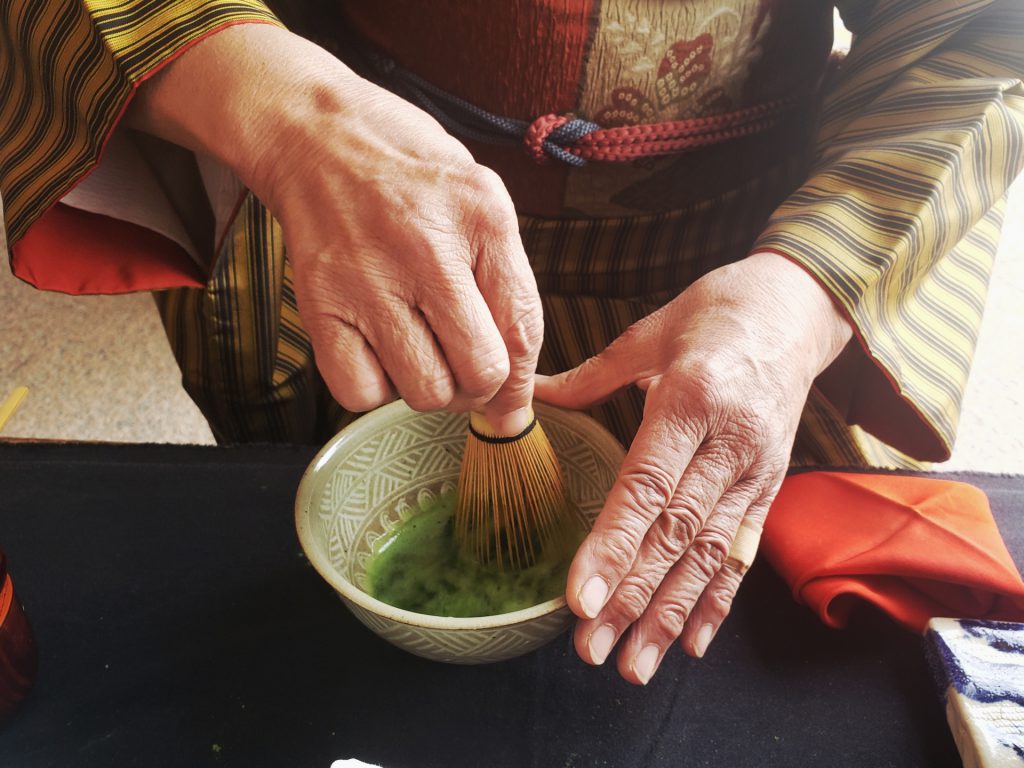
In addition, the Japanese tend to wear kimono for special occasions such as school entrance ceremonies (the parents wear a kimono, not the kids), university graduation ceremonies (both parents and students), weddings (both couple and guests), koto (traditional japanese instrument) music performances, etc. Also wearing a black kimono (never yukata) is costumary when the deceased is a family member.
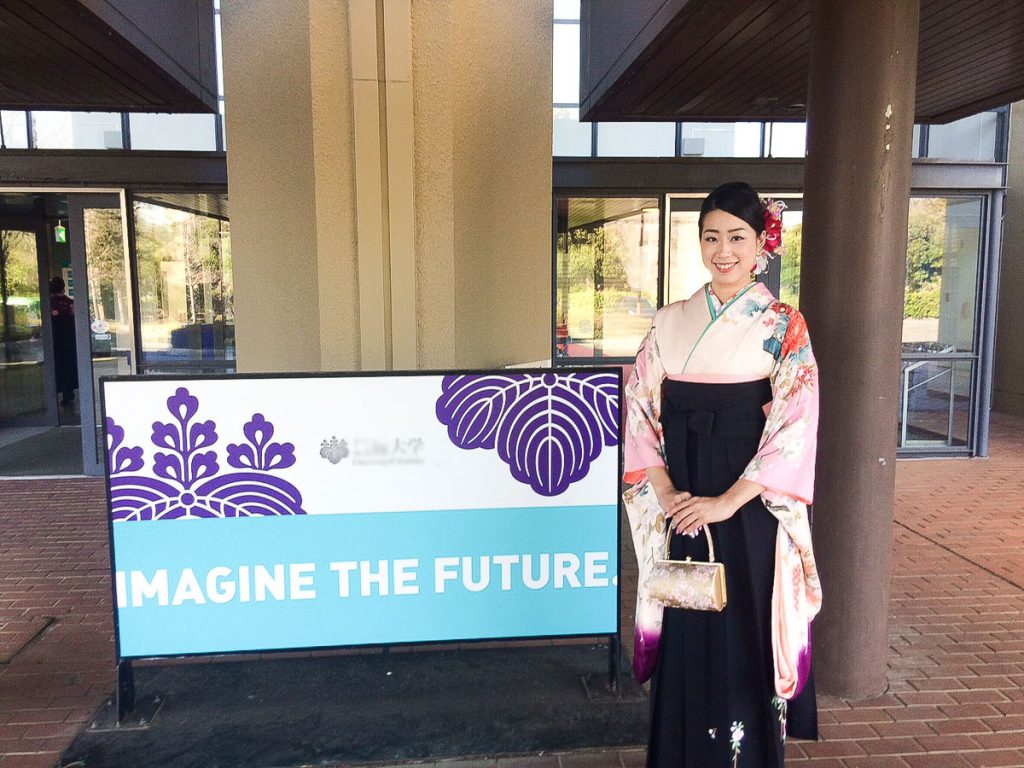
To end, I need to share my embarassing experience. Once I wore kimono for a very important ceremony, I was just super hungry as usual. I ate three buns before putting on my kimono. What happened next, because kimono was super thight, the loafs got stuck around my chest (I felt) and I was totally sick during the ceremony. If one day you have a chance to wear a kimono, do not eat before.
MALE YUKATA
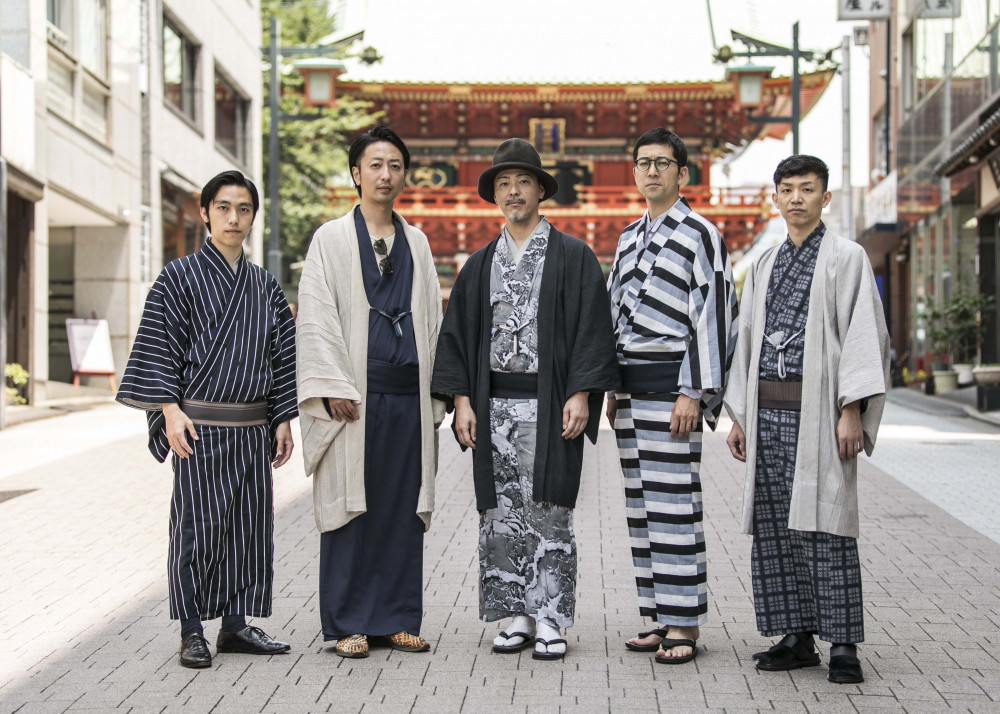
I no longer need to say but yes there are male yukata. Unlike the woman’s yukata which has a lot of colors, men’s yukata are simple with monotone color and design. Somehow, men who wear yukata seem very attractive, I find. This is why many images of male characters in manga or anime are used. Do you agree with me?
JINBEI
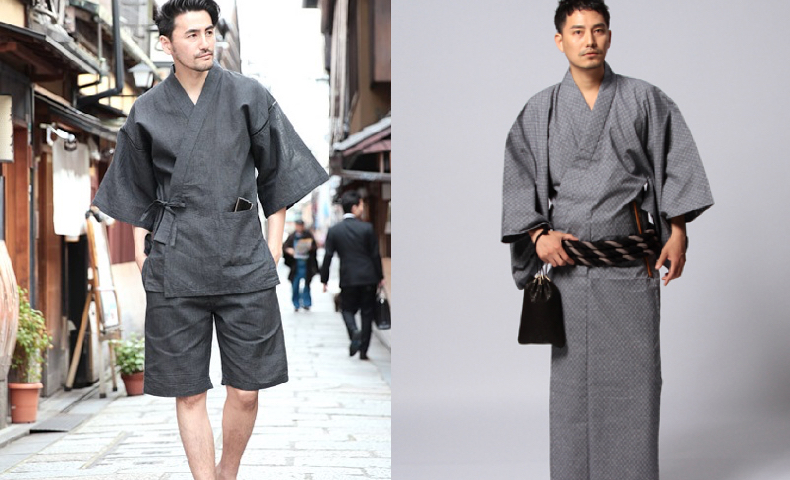
You’ve probably never heard of jinbei if you don’t live in Japan, but it is also the same family of yukata and kimono. Simply saying, jinbei is a short yukata. Jinbei are also Japanese traditional clothes but are more used as a kind of homeroom wear. Check out the picture above to see the difference between jinbei (left) and yukata (right). Jinbe is a combination of short-sleeves and short pants. There is a belt in front of the sleeve so all we need to do is to tigh it up.
In fact, some Japanese prefer to wear jinbei more than yukata because jinbei are super easy to put. No need to learn how to wear them, even a baby can wear on their own. Also, jinbei is more comfortable than yukata (yukata is also comfortable, though) due to no big belt (the obi), around the waist.
In my opinion, less women wear jinbei because the short-sleeves and short pants make them seem too young and they are too casual compared to a man wearing a jinbei. However, kids ofter wear jinbei to allow them move freely.
YUKATA PATTERN
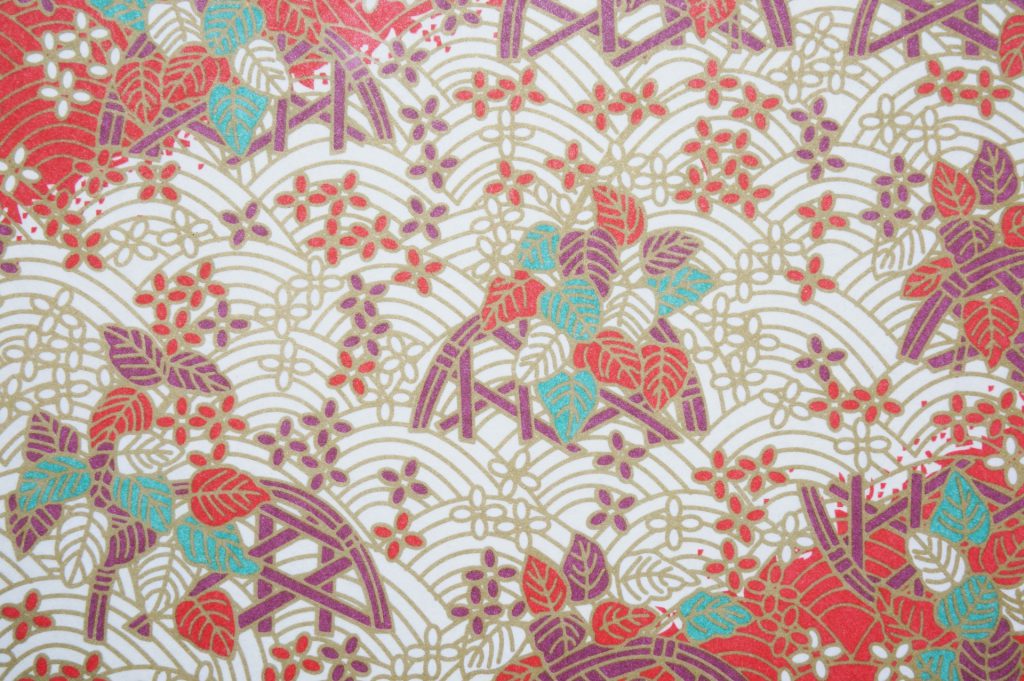
All yukata designs are made by patterns and those yukata patterns vary a lot. Most choose yukata by based on the patterns so it’s all up to their fashion taste.
However, I want to tell you that all Japanese traditional patterns have a meaning. This is why those who make kimono choose materials by checking the meaning of yukata patterns. I used to be told by my mom or her friends, “This pattern is for your age” or “This pattern is too old for you”. Yukata is much more casual than kimono so in a way we don’t really care about the meaning of yukata pattern but not for kimono (the pattern symbolizes the same meaning whether for yukata or kimono). If one day you wear kimono for occasional reasons, you’d better check the meaning of the patterns otherwise you will make a huge mistake.
Ok, so this time I’m gonna explain some yukata (kimono) pattern meanings.
YUKATA PATTERN 1: ASANOHA
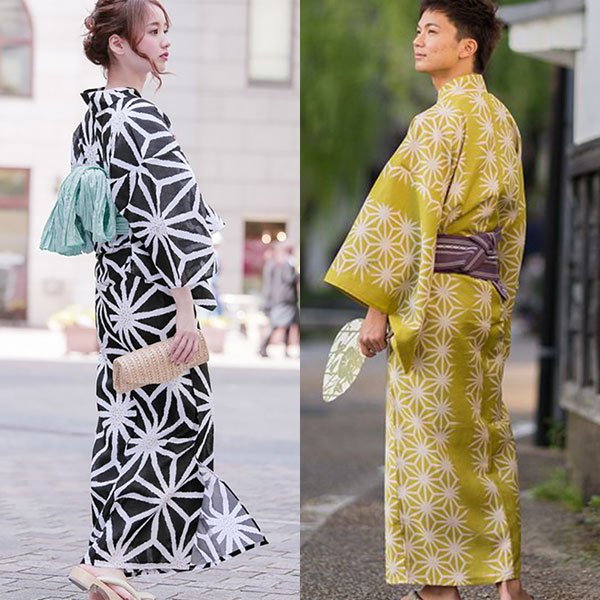
The hemp leaf called asanoha (麻の葉) is often used as a yukata pattern. One of the reasons why both female and male like this yukata pattern is because it’s geometric and looks classy. hemp leaf is well known for growing fast so it symbolizes growth’ therefore many parents dress their baby in it as their first clothes.
YUKATA PATTERN 2: BOTAN
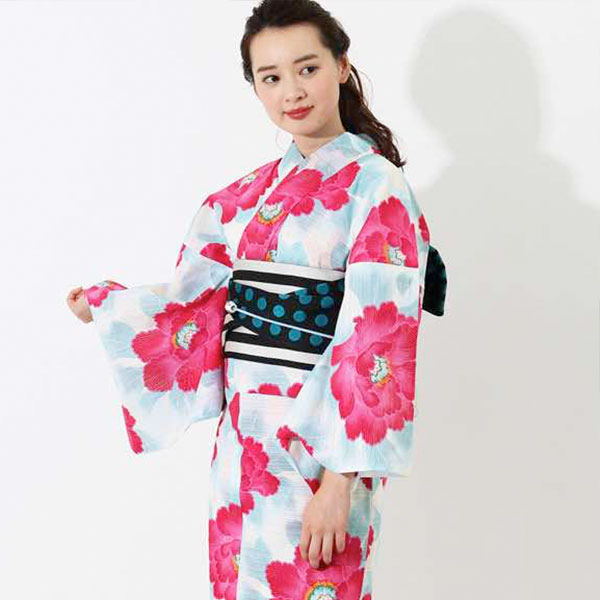
Botan (牡丹) or poeny in English is also used a lot for yukata patterns. Its look is very gorgeous and elegant. Botan symbolizes happiness, wealth and nobility because botan can bloom large from a tiny seed.
YUKATA PATTERN 3: SHIPPŌ
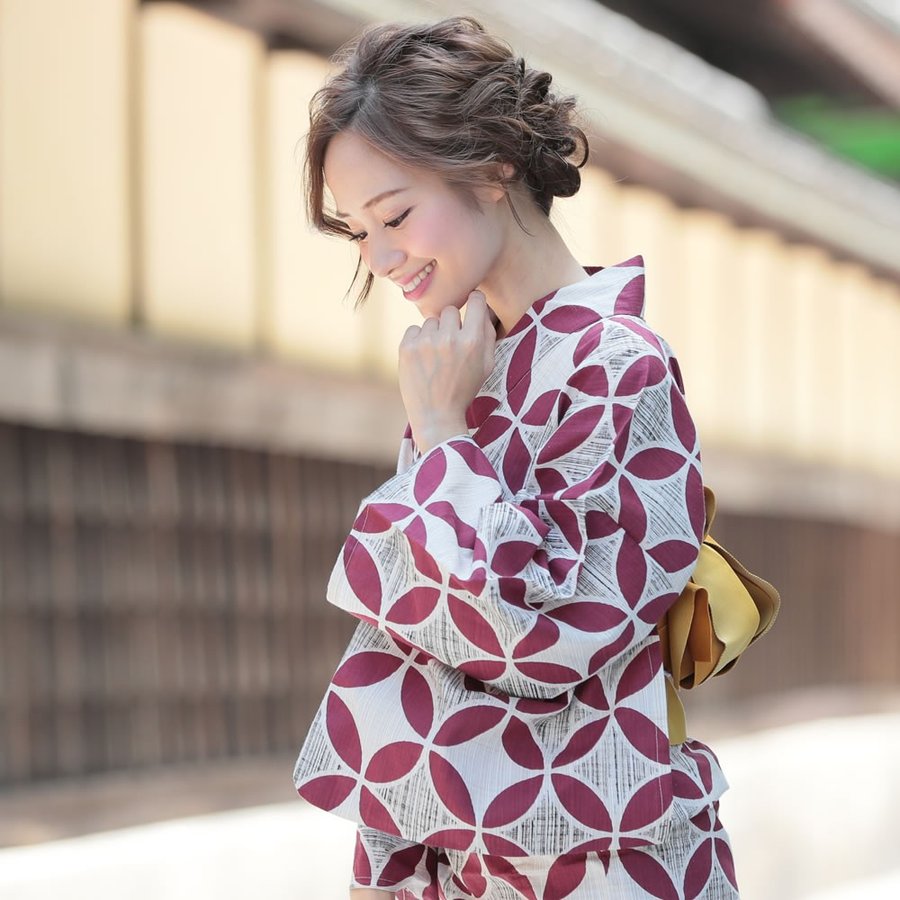
This yukata pattern ‘shippō (七宝) or cloisonne, is very satisfying to look at. It signifies the seven treasures and circle signifies harmony therefore those who want to have many kids prefer this shippō yukata pattern.
YUKATA PATTERN 4: UME
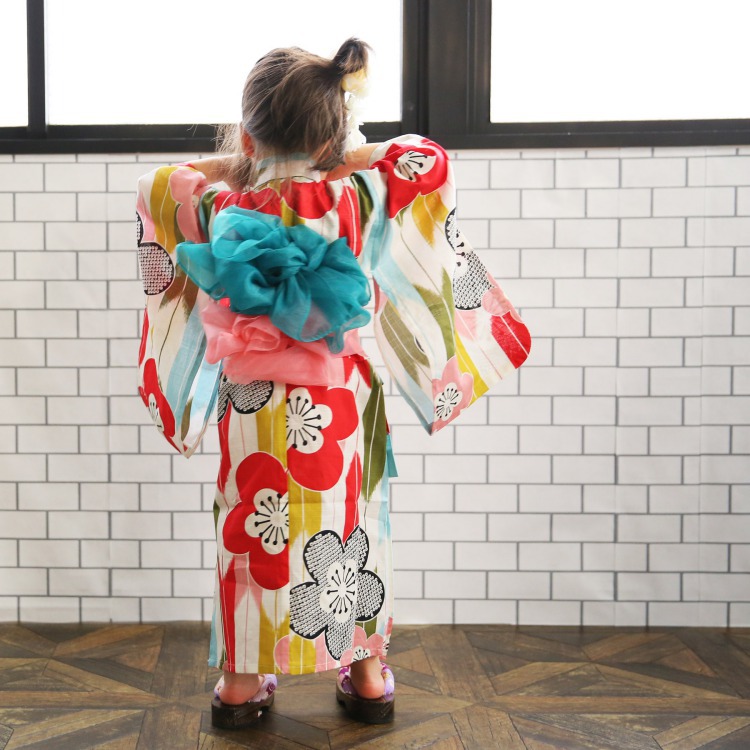
If you come to Japan in spring, you may see this flower called ‘ume (梅)’ or plum. It’s such a tiny flower but the vivid color attracts us. No doubt, this yukata pattern is also well used and unlike other yukata patterns, many Japanese know this design means ume due to its realistic look.
Ume blooms after the cold winter so it symbolizes patience and beauty. Also, the synonym for ume (産め) in Japanese means childbirth, therefore, this yukata pattern signifies praying for safe childbirth.
YUKATA PATTERN 5: YUKIWA
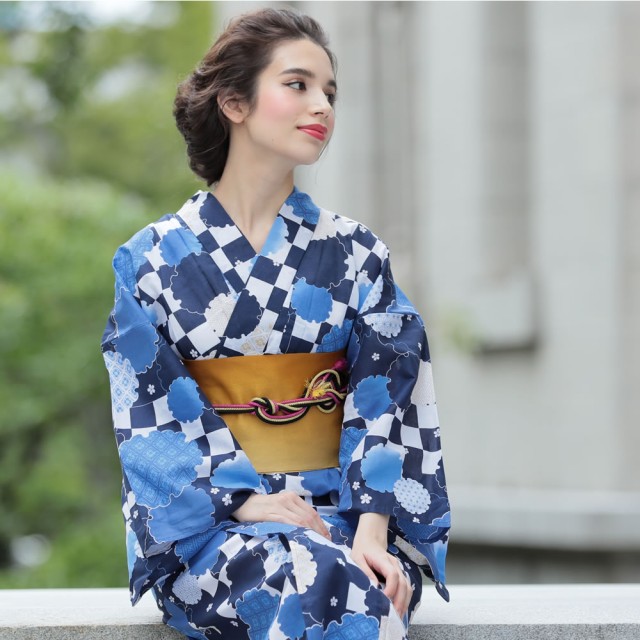
Because yukata is worn in hot summer, the yukata pattern ‘yukiwa (雪輪)’ meaning snow ring, is chosen to show the cold on purpose, almost ironically. Among Japanese women, we love retro style and we wear yukata with yukiwa patterns.
YUKATA PATTERN 6: SEIGAIHA
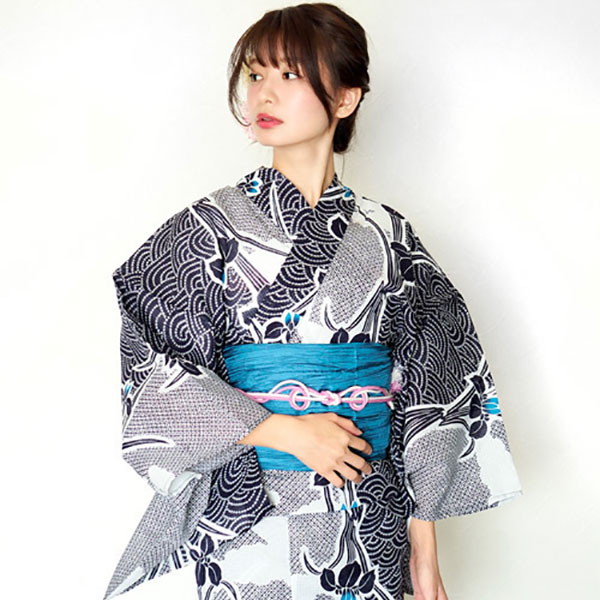
As you can imagine, yukata pattern ‘seigaiha’ (青海波) means the blue ocean. This pattern is also geometric and not only for yukata or kimono but also for any Japanese designs, it’s often used. Sigaiha symbolizes the long peaceful life like a quiet, big and infinite ocean.
WHAT YOU NEED TO GET FOR WEARING YUKATA
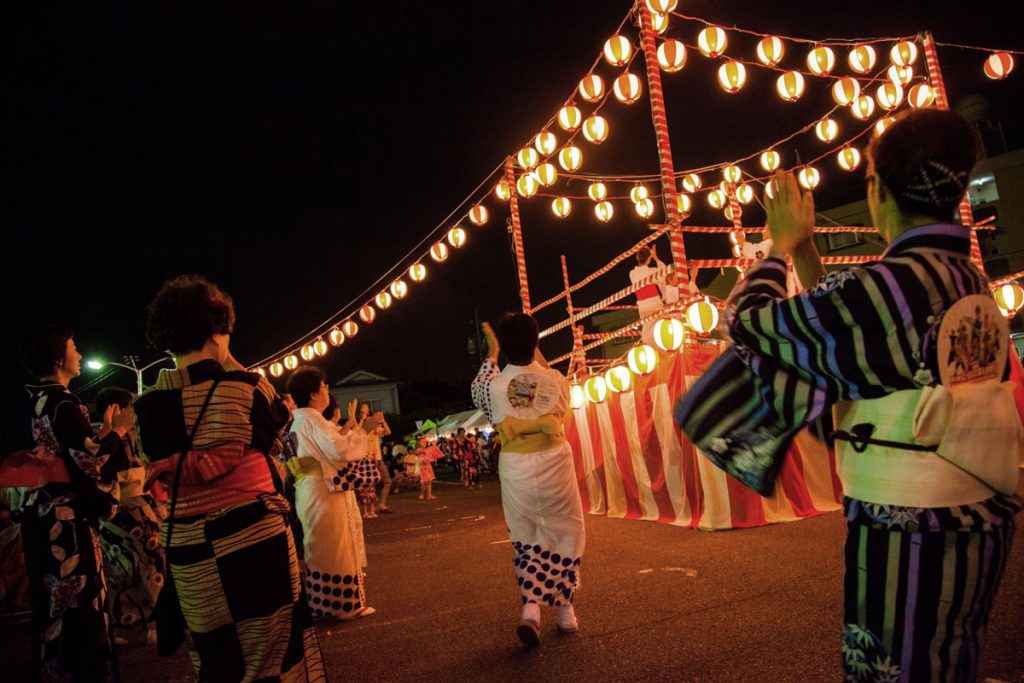
If you are interested in yukata, here is a list of what you need to get to wear one. They might differ based on gender.
YUKATA FOR WOMAN
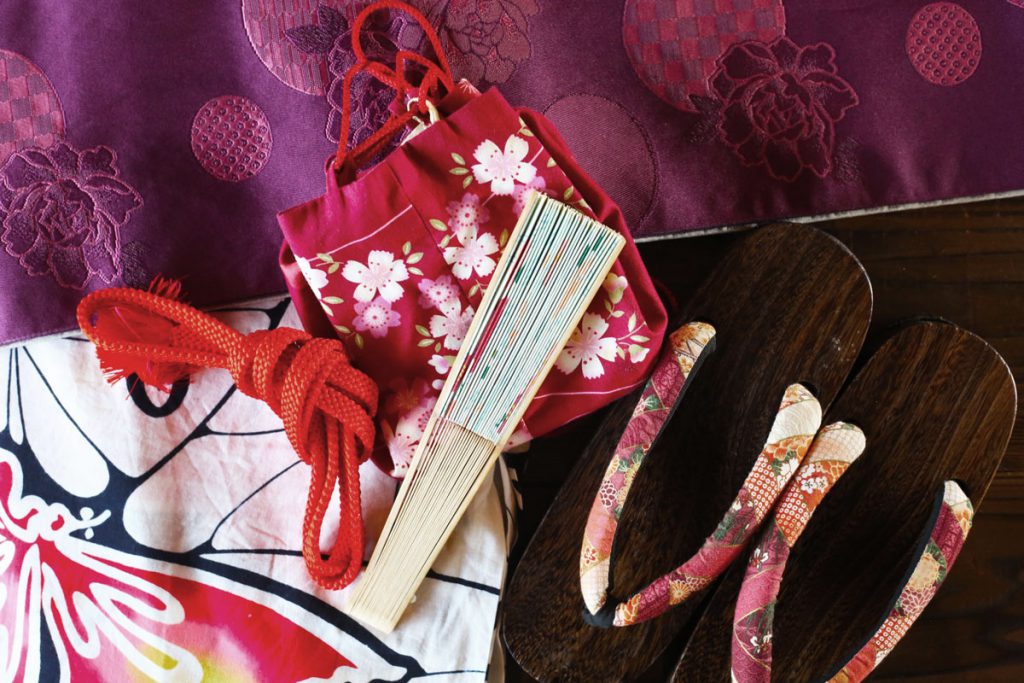
As you can imagine, women need more yukata items than men.
1. YUKATA
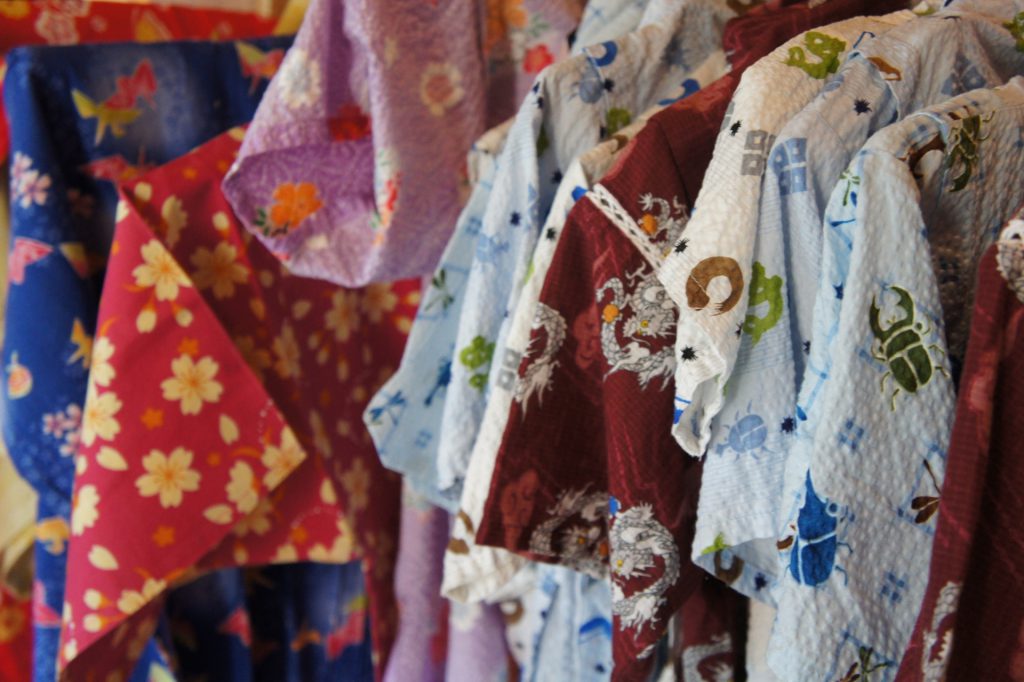
Of course.
2. OBI (BELT)

Obi (帯) is the belt for yukata. On the back, we make a decorative knot. Some obi are already made as default.
3. GETA (SHOES)
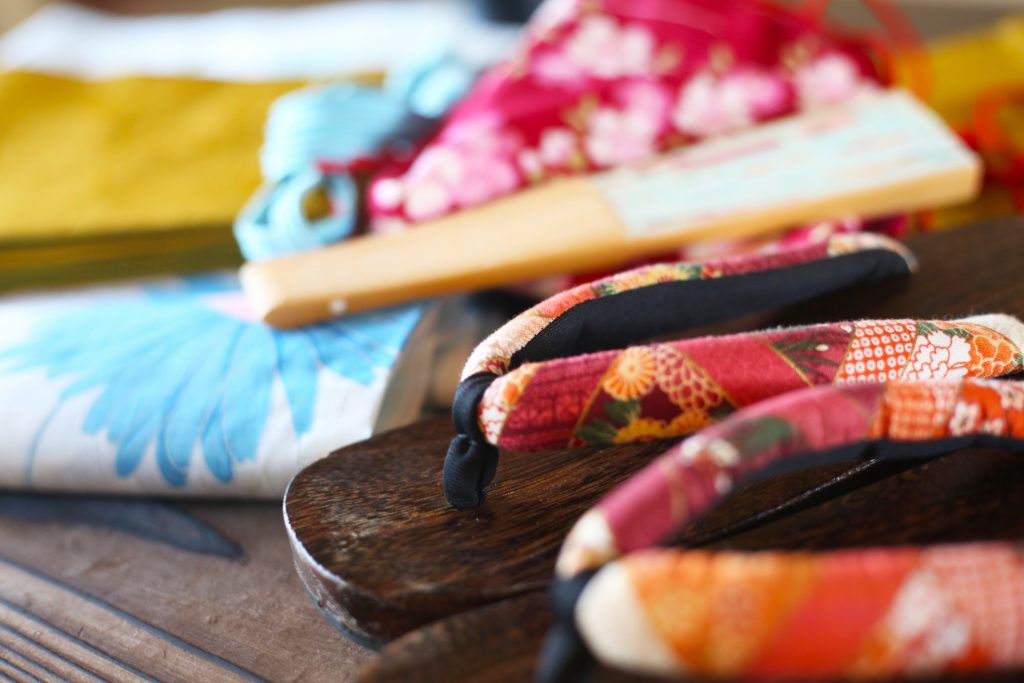
Geta (下駄) are traditional Japanese shoes for yukata (or jinbei). Honestly, it’s not easy to walk for the first time with them and they are very tiring. However, it’s super weird if you wear normal shoes with yukata so please accept your (painful) destiny and wear geta.
4. BAG
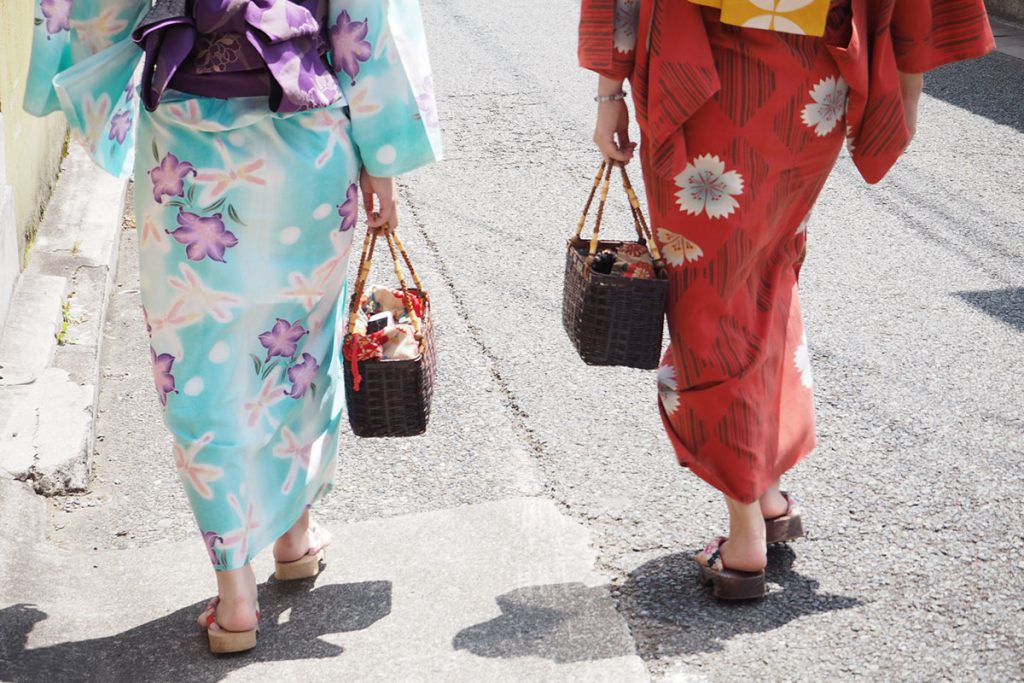
Again, we need a special bag for yukata. If you walk with yukata with normal bag, Japanese feel so sorry for you. It doesn’t matter which style of bag you choose at long as it’s for yukata.
5. INNER SHIRT
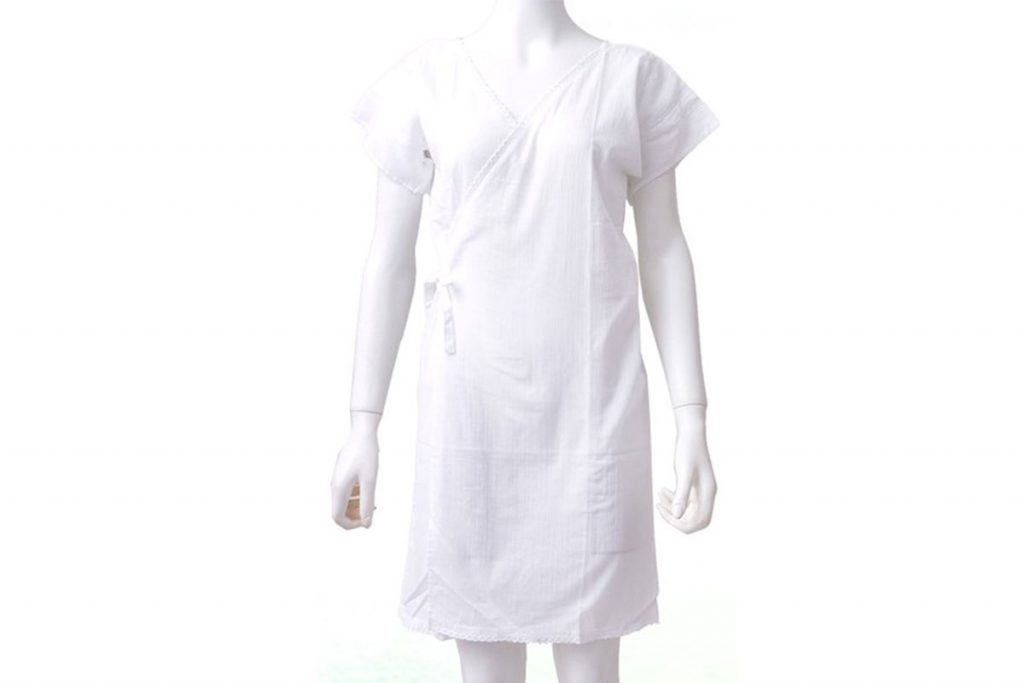
Inner shirt
There is a special inner shirt for yukata. It’s not something you have to wear but the reasons why you should are:
- It absorbs the sweat even for underarms
- It makes it easy to walk
- It hides underwear
Personally, when I wear yukata, I definitely wear an inner shirt!
6. KOSHI-HIMO (THIN STRING)
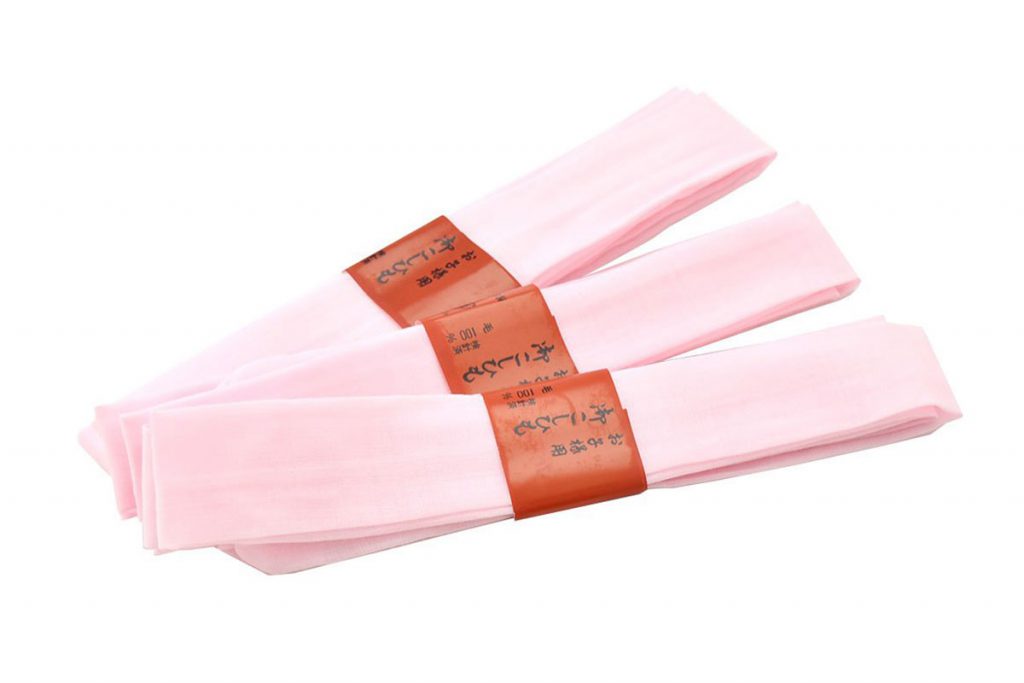
Koshi-himo
We need a thin string called koshi-himo (腰紐). Without this item, it’s easy for the yukata to losen up while walking. Koshi-himo is also used for kimono. You need to get at least one koshi-himo for wearing yukata.
7. KORIN BELT (THIN BELT)
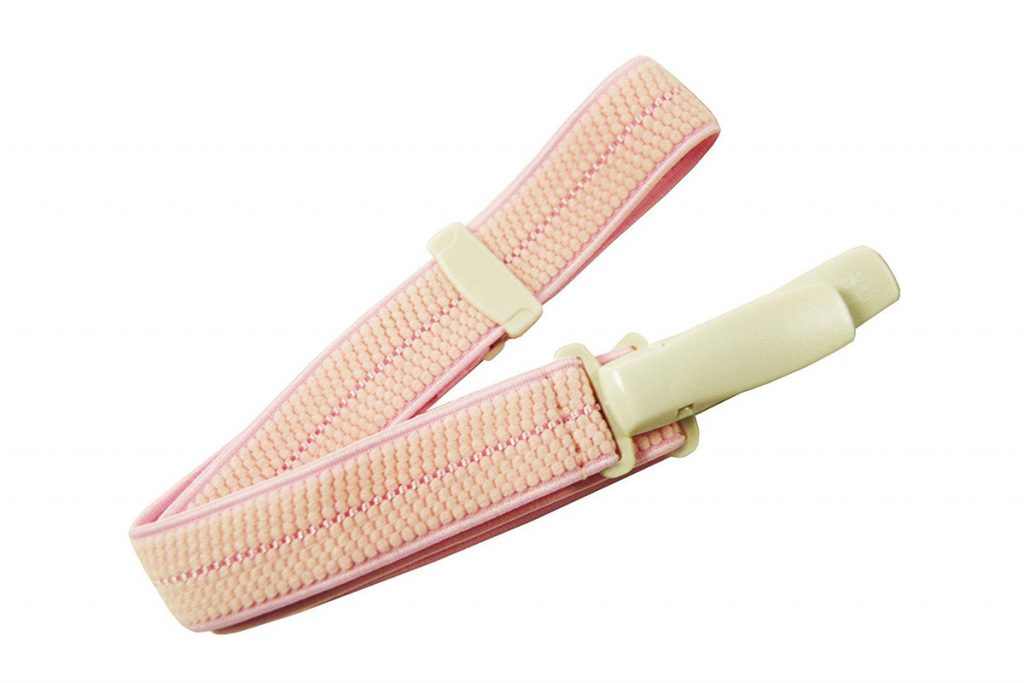
Korin belt
Right after Koshi-himo, we use a Korin belt (コーリンベルト) which is an elastic with plastic clips on both ends to secure the waist part.
8. OBI-ITA (THIN STIFF BOARD)
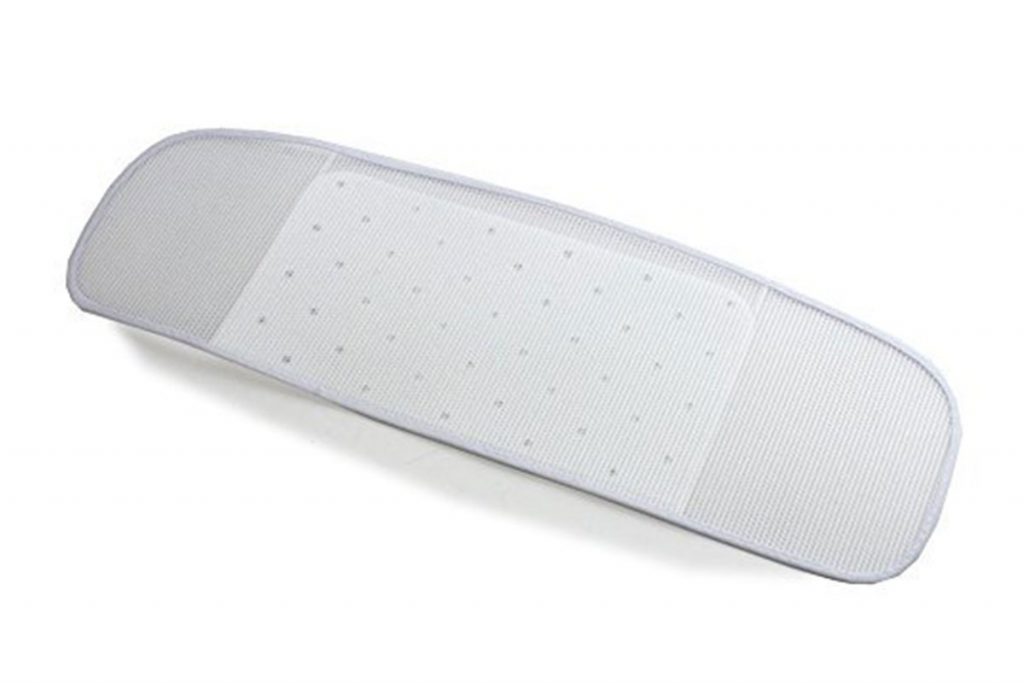
Obi-ita with mesh fabric
Once you tight your waist up, you use the obi-ita (帯板) which is a thin stiff board. This board helps the obi to maintain the right form in the right shape and prevennts it from getting wrinkled so it’s used also for kimono. We put it between the first roll of obi and the second one. Especially for yukata, you’d better choose obi-ita with mesh fabric to let the air in.
YUKATA FOR MAN
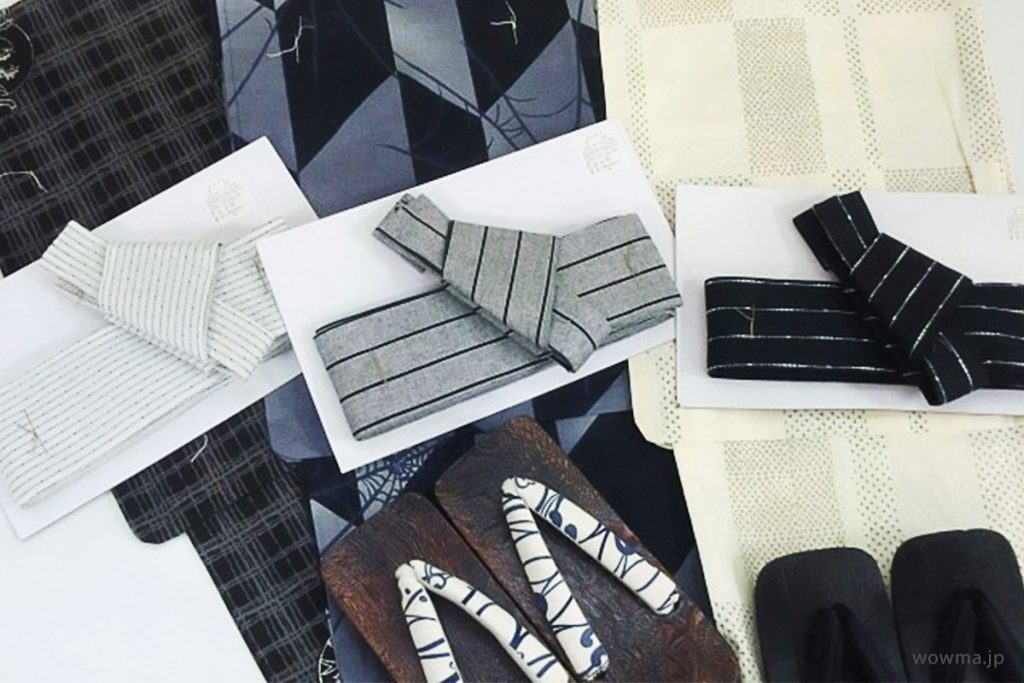
Yukata items for man
Gentlemen, finally it’s your turn for preparing yukata. Items for male yukata are quite simple. Please make sure that you don’t decide to take too many colorful items. Monotone is the key to make you handsome while walking with a woman.
1. YUKATA
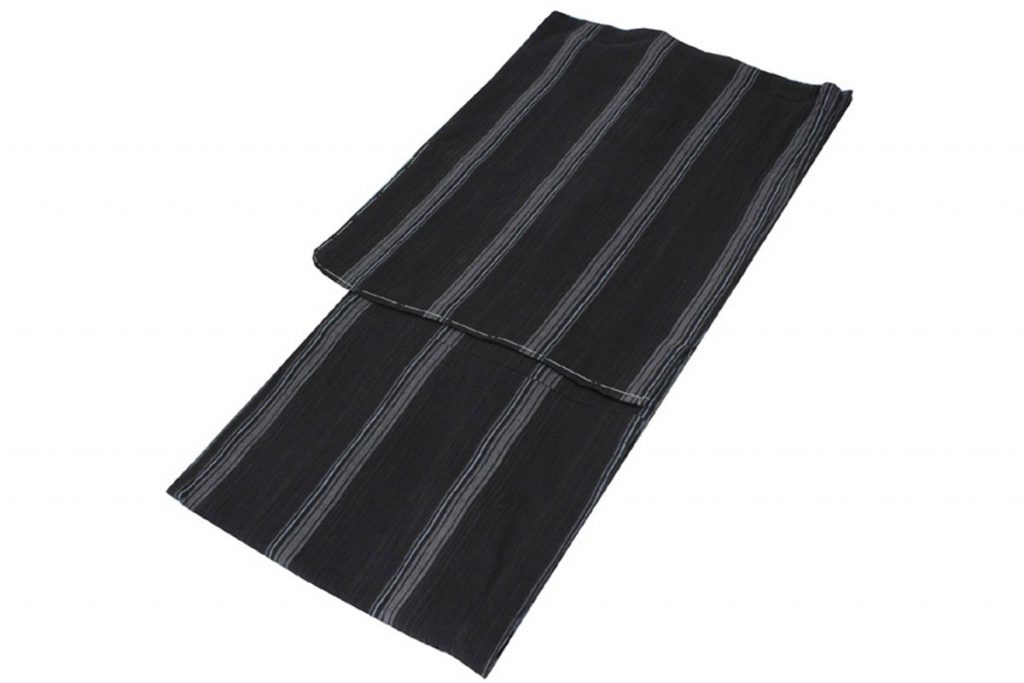
Male yukata
No doubt.
2. OBI (BELT)
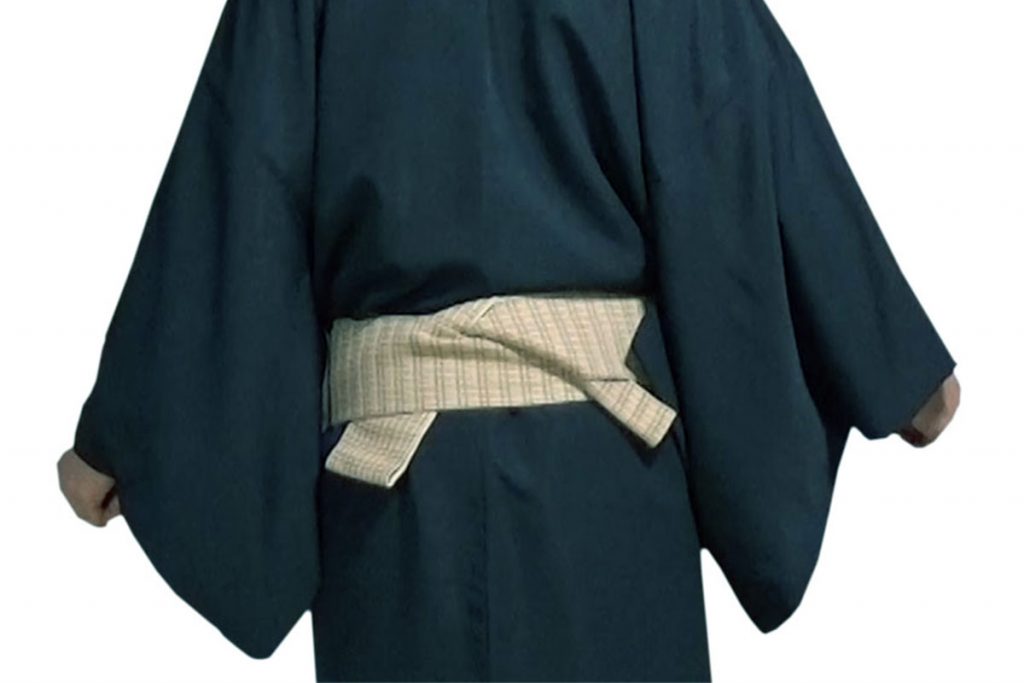
Obi for man
Like for women’s, we need an obi (帯) belt to tighten your body and yukata. Unlike women, men don’t make a decorative knot. Don’t be jalous.
3. GETA (SHOES)
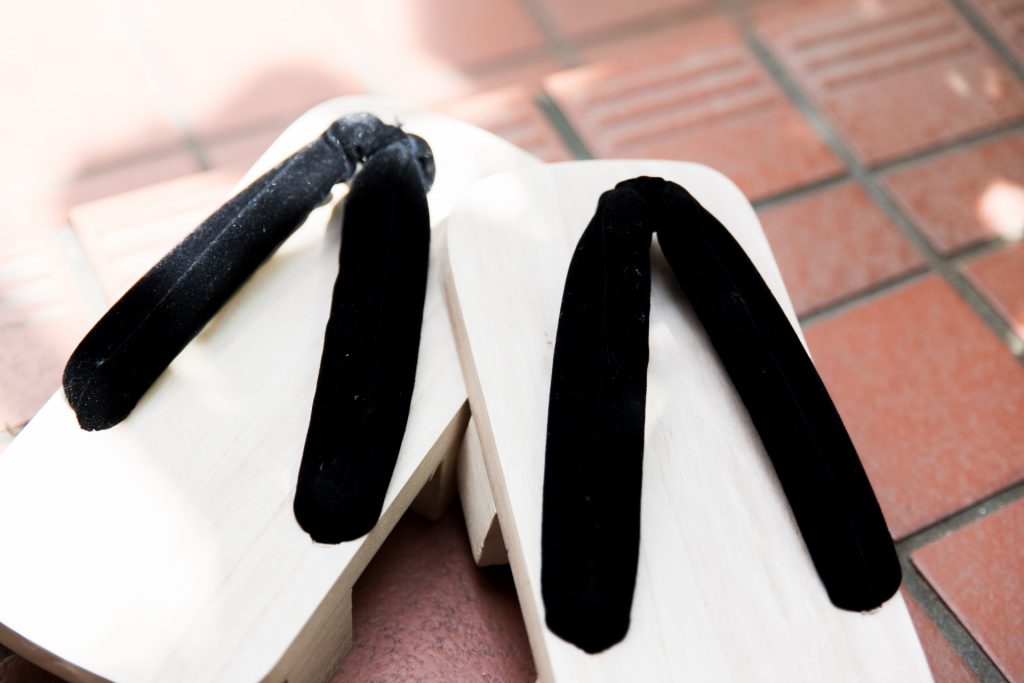
I’ve never seen a Japanese woman who wears geta (下駄) in daily life. However, there are some men especially the elderly who do. Sometimes it looks fashionable, sometimes it makes them look like hippies. The shape of the geta for men is much wider than women’s. Again, all you need to do is to get used to wearing it while wearing yukata.
4. ACCESSORIES: BAG AND FAN
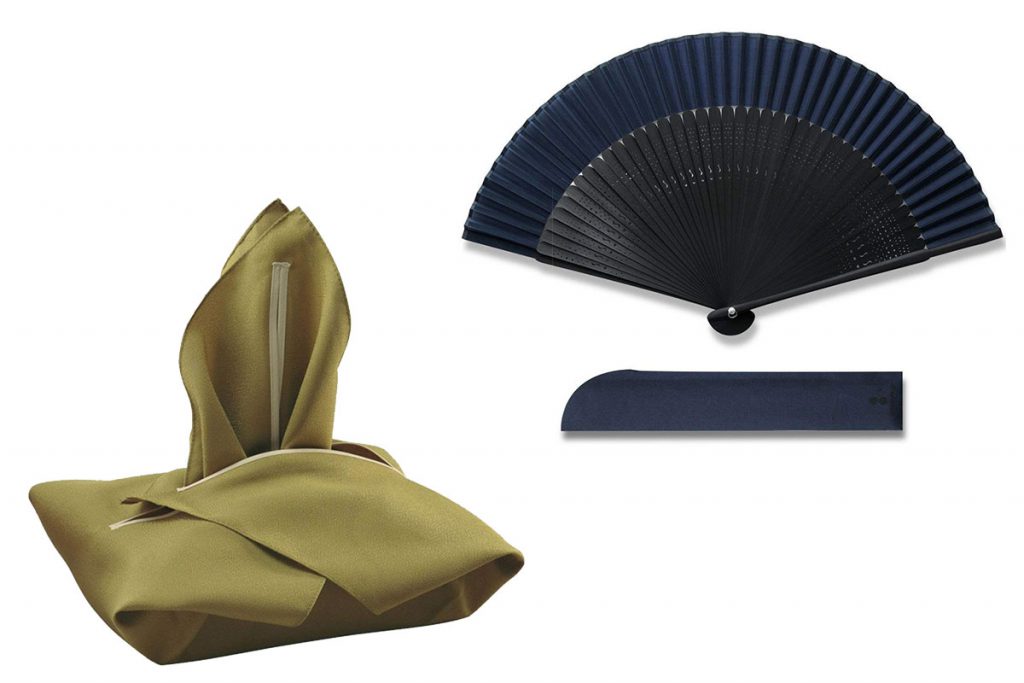
Accessories: bag and fan
In general, men don’t carry a lot of items so you may not need a bag. But if you need anything to bring, you need to get a bag. My recommendation is a furoshiki bag (風呂敷バッグ) which is made with one square shaped cloth. In addition, if you want to be much cooler, you must bring a fan.
5. INNER SHIRT AND PANTS
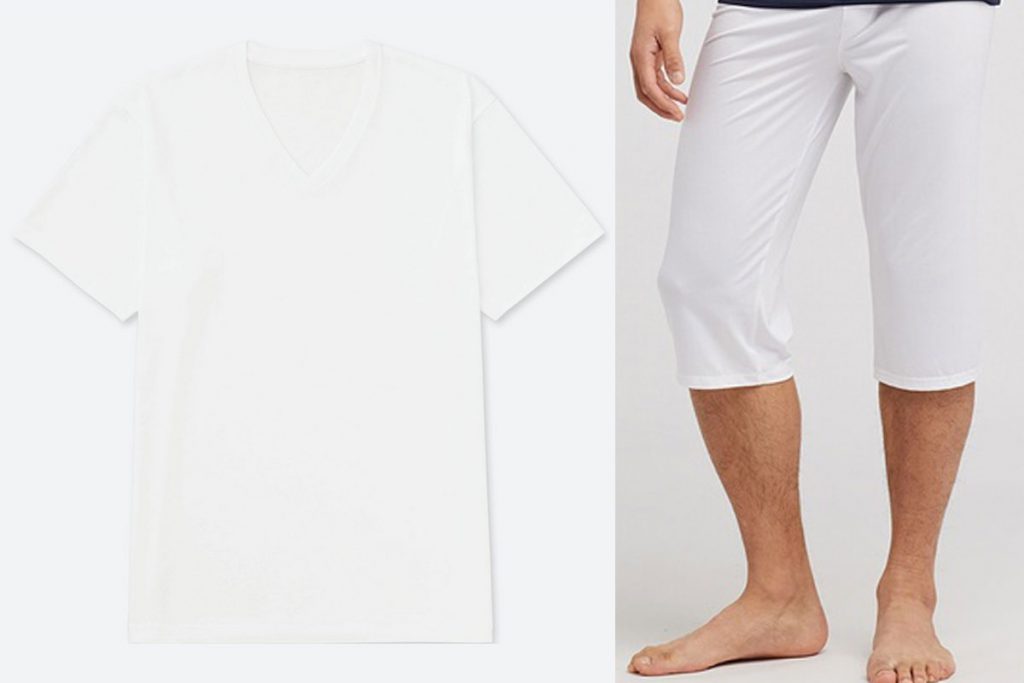
For men, inner shirt and pants are required like for women. Even if you have six pack, you need to hide it with the inner shirt. Showing the chest isn’t considered a good thing when you wear a yukata. While women need the proper inner shirt for yukata, men can simply use a white V-neck T-shirt (not round-neck one) and white half-long pant.
6. KOSHI-HIMO (THIN STRING)
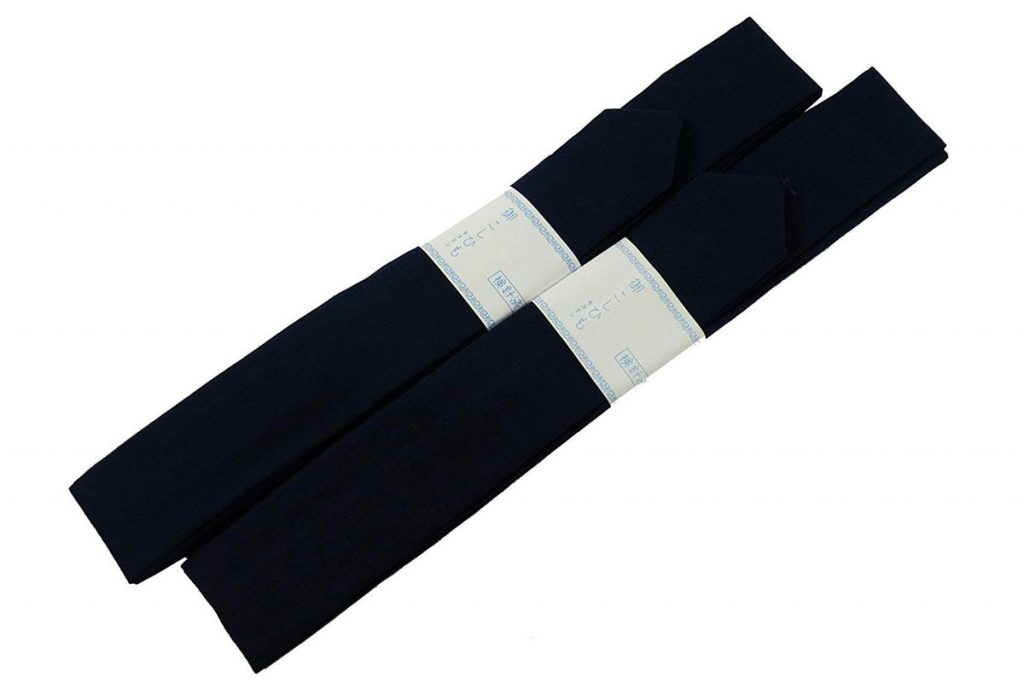
Koshi-himo
A thin string called koshi-himo (腰紐) is necessary for male yukata, too. Tigh your waist with this string to keep your yukata beautiful. Like for women, you need to get at least one koshi-himo.
7. TOWEL
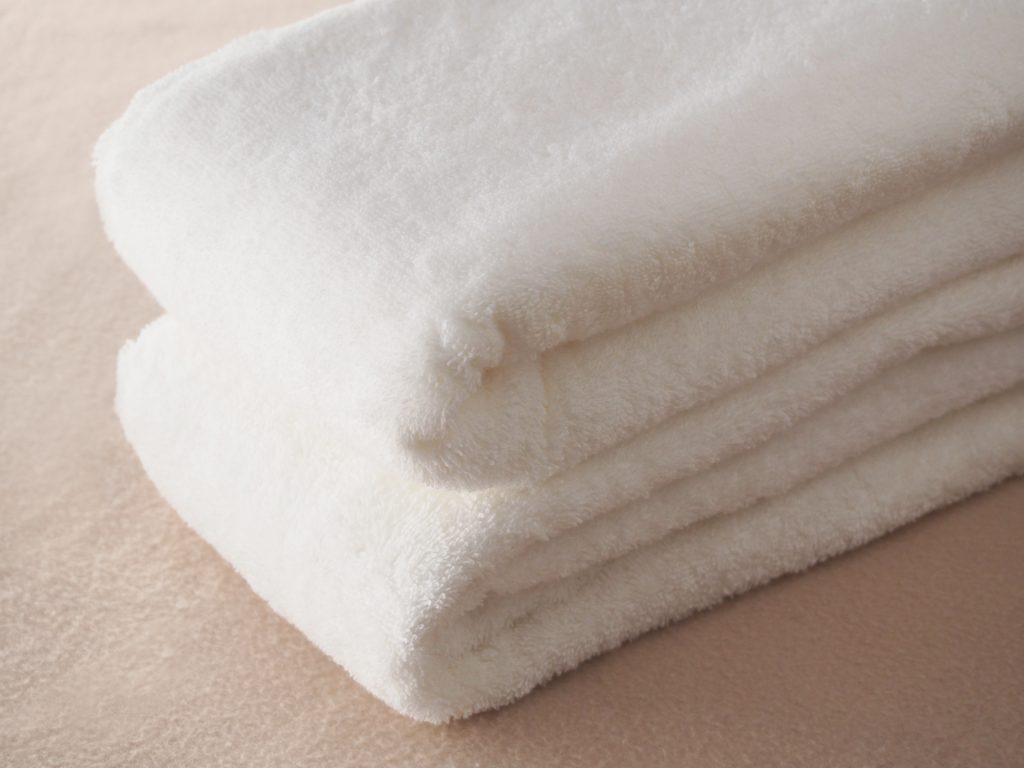
If you are skinny, you need to wear a towel on your waist. Without the towel, the obi belt will come up from your stomach which destroys the shape of the yukata. Although there is a special towel for kimono, you can simply use your normal towel.
YUKATA RENTAL SERVICE
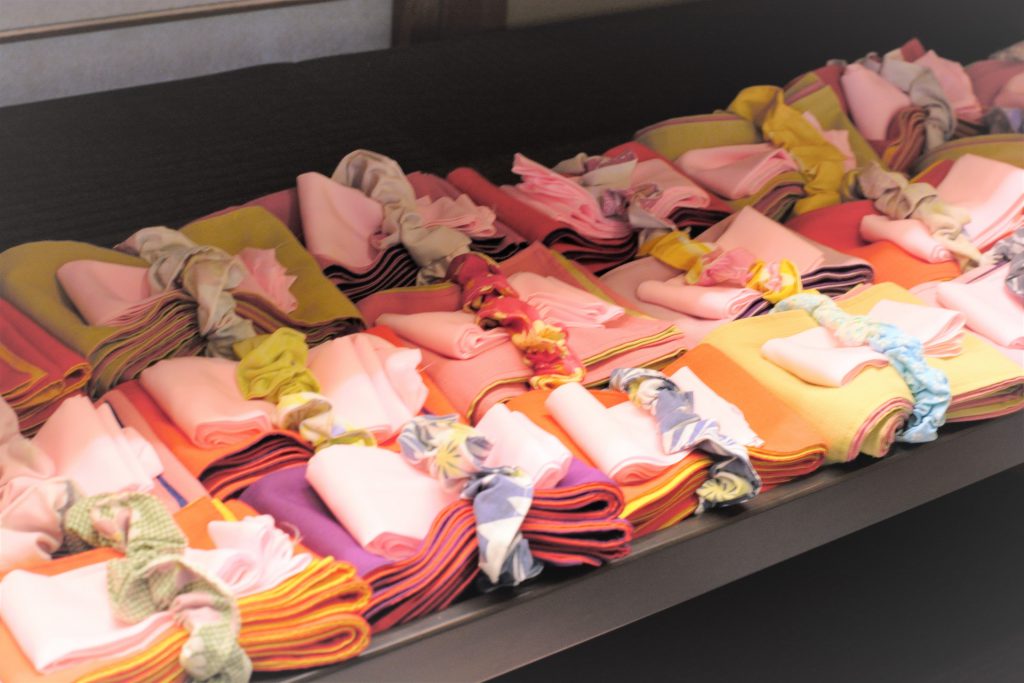
If you want to wear a yukata just once for your new Japanese experience, I recommend you to rent one. In big cities or traditional cities such as Kyoto, Osaka and Kamakura, you can definitely find a yukata rental shop. In addition, if you want a yukata expert to dress you up, you can ask them. Sometimes it’s free and sometimes you need to pay extra. If I were a foreigner coming to Japan for traveling, I would simply go to the yukata rental shop and ask them to dress me up. Furthermore, you may find other services at yukata rental shops: (free) hair-setup, (free) locker, etc.
Although some yukata shops offer yukata service on the very day, generally it’s better to reserve the yukata for the day you want. I selected yukata rental shops below which are highly recommended which allow online bookings. However, many websites don’t have information about yukata but rather only kimono so never mind and ask for yukata on the reservation page.
*You may have to visit the yukata shop to choose your yukata before your booking day so if you are sure that you want to wear a yukata, you’d better take action as soon as possible.
1. AKI KIMONO RENTAL (TOKYO & KANAGAWA)
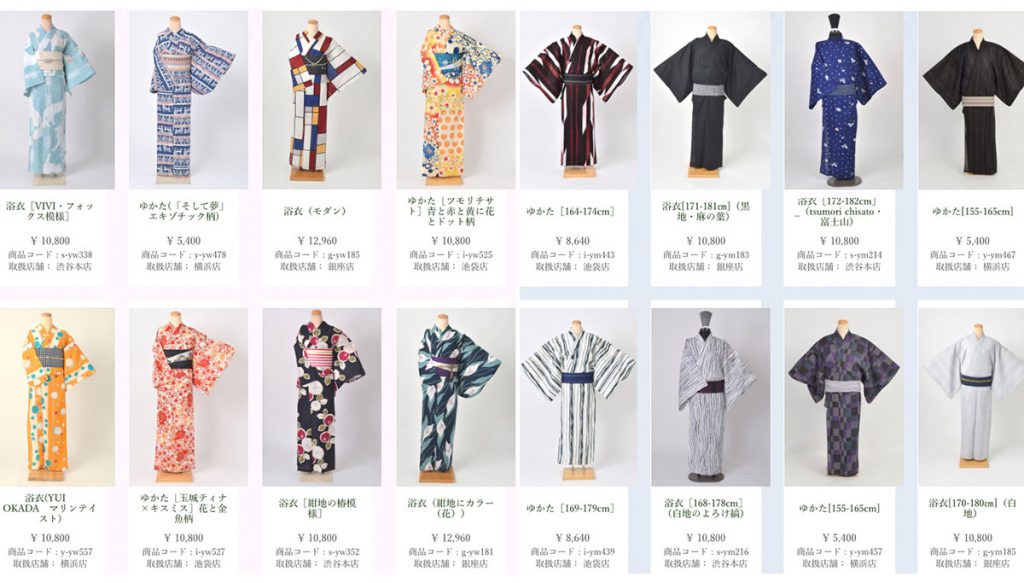
If you want to choose your yukata from thousand of yukata, AKI Kimono Rental (着物レンタルあき) is where you should go. AKI Kimono Rental have shops in three large districts in Tokyo: Shibuya, Ikebukuro, and Ginza, also one in Yokohama and Kanagawa, each. The price for one-day yukata experience starts from ¥5,400 ($49) including the yukata, dressing up, and geta (shoes). Please book your yukata on this reservation page.
2. KIMONOKOUEI (TOKYO)
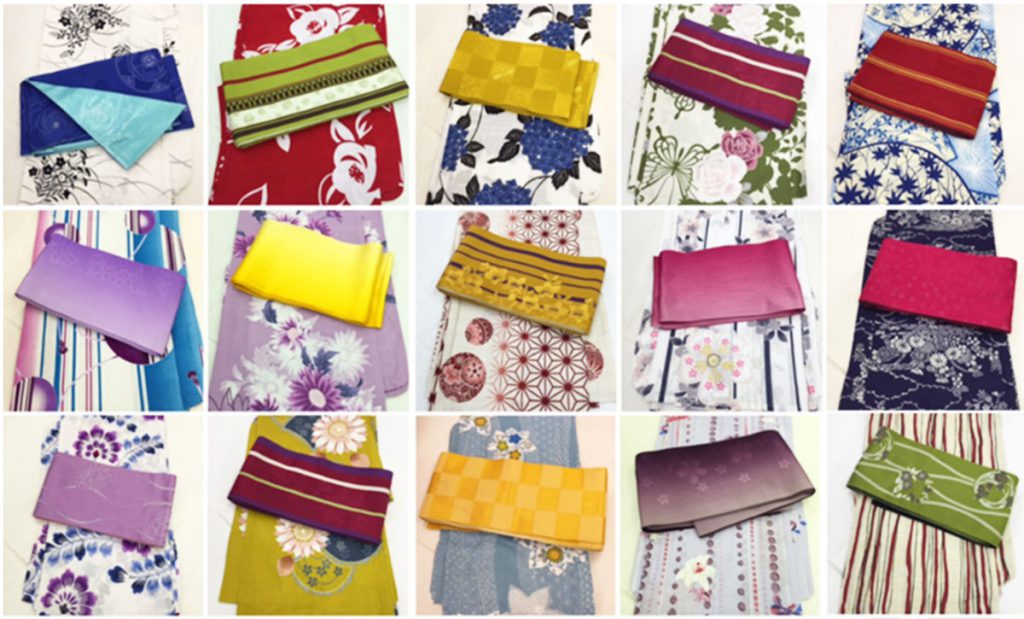
In Ginza, right next to Tokyo station, you can find KIMONOKOUEI (着物興栄). This yukata shop offers very high quality yukata at a reasonable price. When renting a yukata, the inner shirt is included. The price for a one-day yukata experience starts from ¥5,400 ($49) including the yukata, dressing up, geta (shoes), and an inner shirt. The site has a contact form, but it’s all in Japanese so you have two choices if you can’t read Japanese: calling or visiting this shop (without an appointment is fine). Because I’m not sure if they can understand English, I recommend visiting this yukata shop directly.
3. KYO-TEMARI (KYOTO)
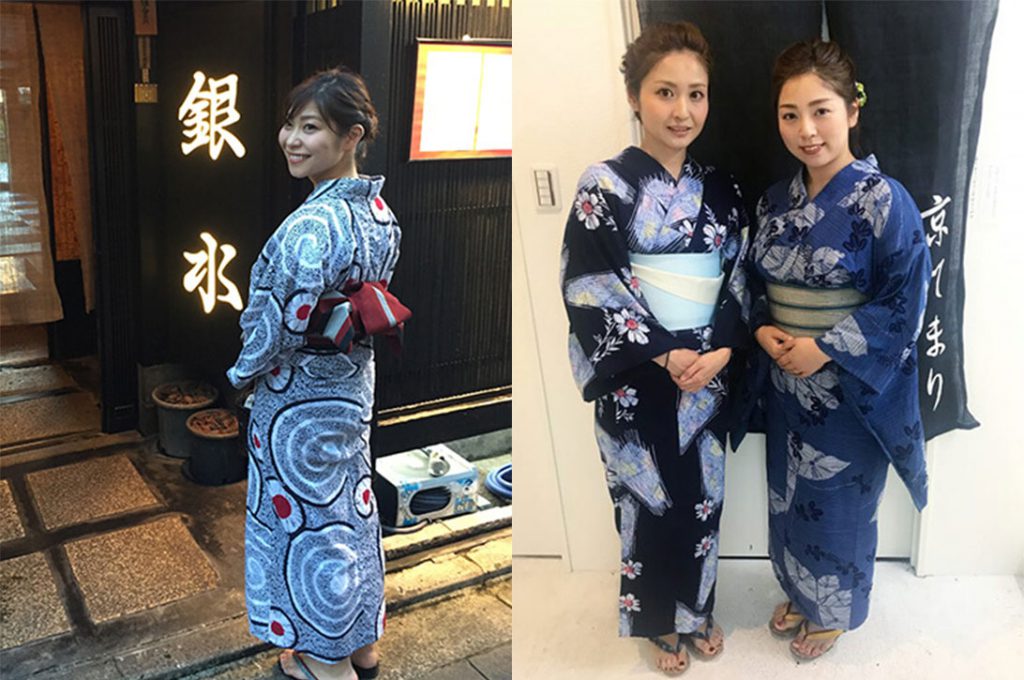
In Kyoto, there are too many yukata rental shops. However, many Japanese think of KYO-TEMARI (京てまり) as one of the best yukata rental shops. As the website tells, you can find a yukata “which doesn’t look like you have rented it”. If you look for something very chic, simple, and classy, you must go there! All yukata are made from 100% cotton which brings yukata to the next level. The price for a one-day yukata experience starts from ¥4,000 ($36). Please book your yukata on this reservation page.
HOW TO WEAR YUKATA
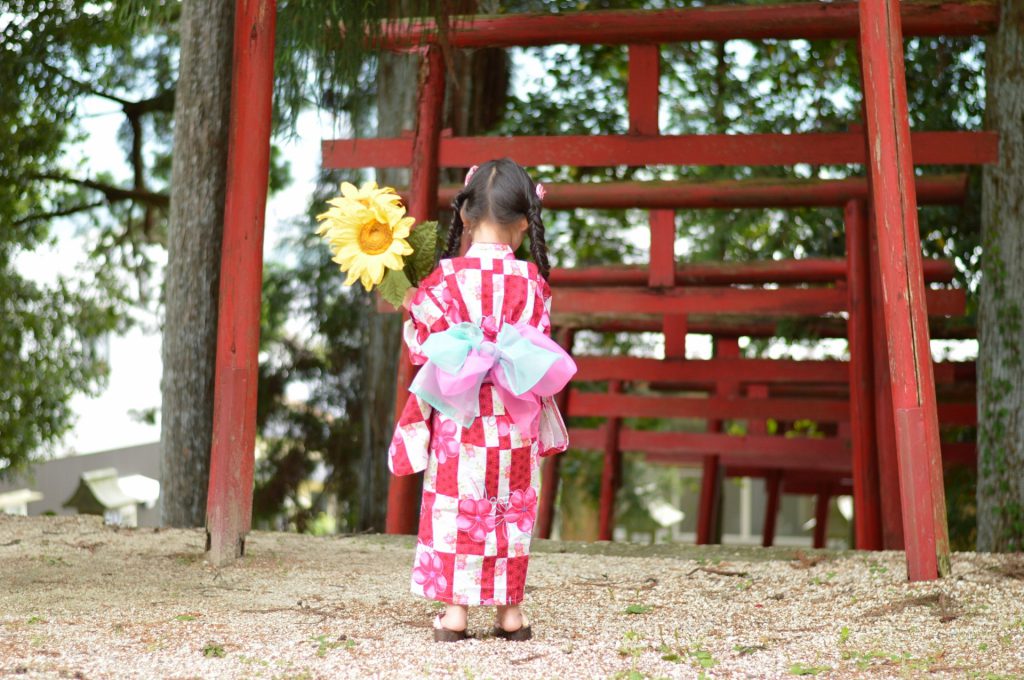
Simply speaking, wearing a yukata isn’t that difficult. All you need to do is to check out the video to know how to wear it properly. I attached the videos below for women and men, in Japanese but no worries! Just try to imitate the instructors.
Talking about obi belt of women, there are various ways to tigh them, so please find your favorite way. To do so, please type in the searching box on the internet “浴衣 帯 結び方” (yukata, obi, the way of tightening) and add ‘男性’ (man) or ‘女性’ (woman).
You may think all Japanese know exactly how to put on yukata but in fact, most of them don’t remember it. So the Japanese also do the same thing: watching the video. Keep calm and try on a yukata!
HOW TO WEAR FEMALE YUKATA
Wearing female yukata takes time. If it’s your first time wearing a yukata, please think about the time. While it’s possible to wear a yukata by myself, I always try to wear it with my friends at the same time so that it’s much easier to put it on without stress.
The hardest part could be making the decorative knot on the back with the obi. If you don’t have the confidence to make it, you’d better get an obi belt which has one premade.
Here are some points that you shouldn’t miss when you wear a yukata.
- During each step, try to stretch wrinkles out of the yukata.
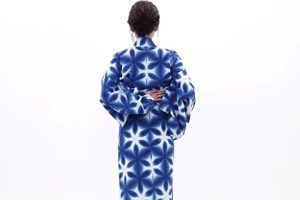
- You need a gap: just one fist, between your neck and yukata.
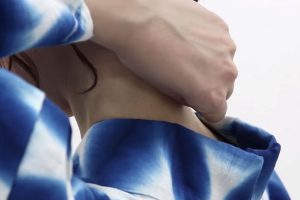
- On the front, please close well, not to let the yukata open.
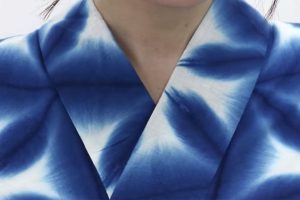
HOW TO WEAR MALE YUKATA
Compared to female yukata, wearing a male yukata is much simpler. One of the key points is the position of the obi belt, as the video explains. Even if your legs are long, the obi belt shouldn’t be high position.
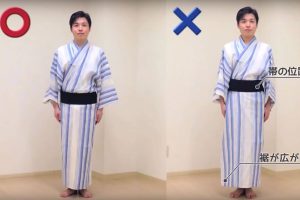
THINGS YOU SHOULD KNOW ABOUT YUKATA
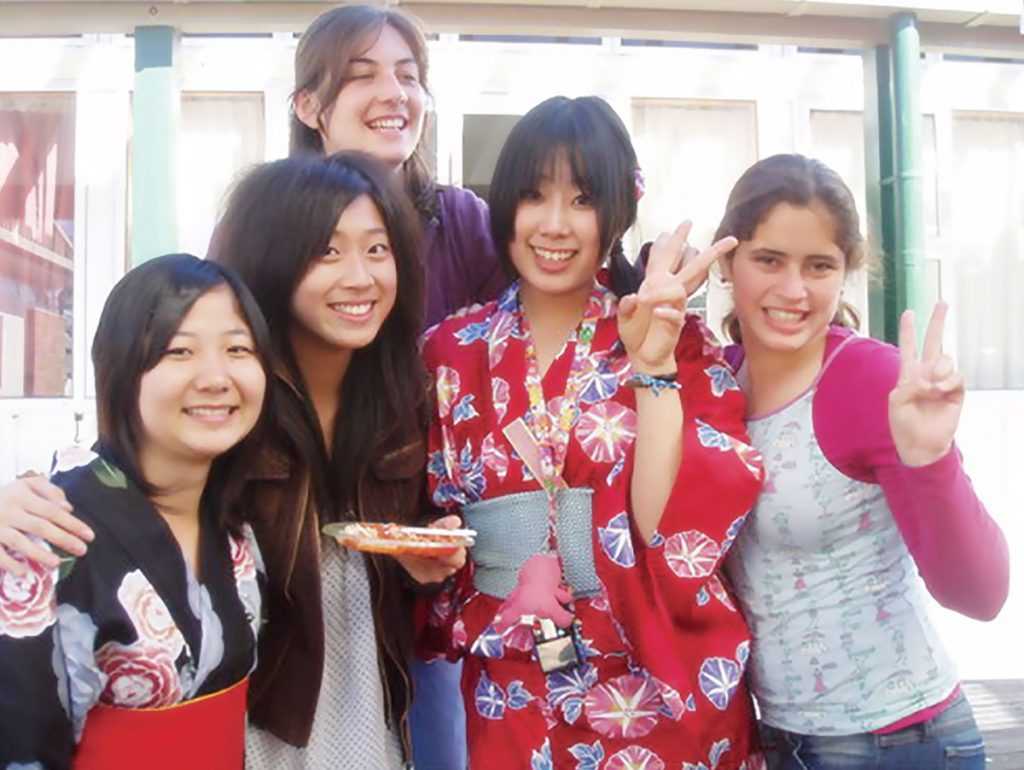
Me in the center when I was the fattest in my life. I brought my yukata from Japan to New Zealand when I studied abroad. Because yukata doesn’t have a limit of width size, luckily I could put it on.
Anyway, now I finally start to talk about what you must know about yukata, not let you be a stranger in Japan and not let you make a faux pas.
THE COST OF YUKATA IF YOU BUY
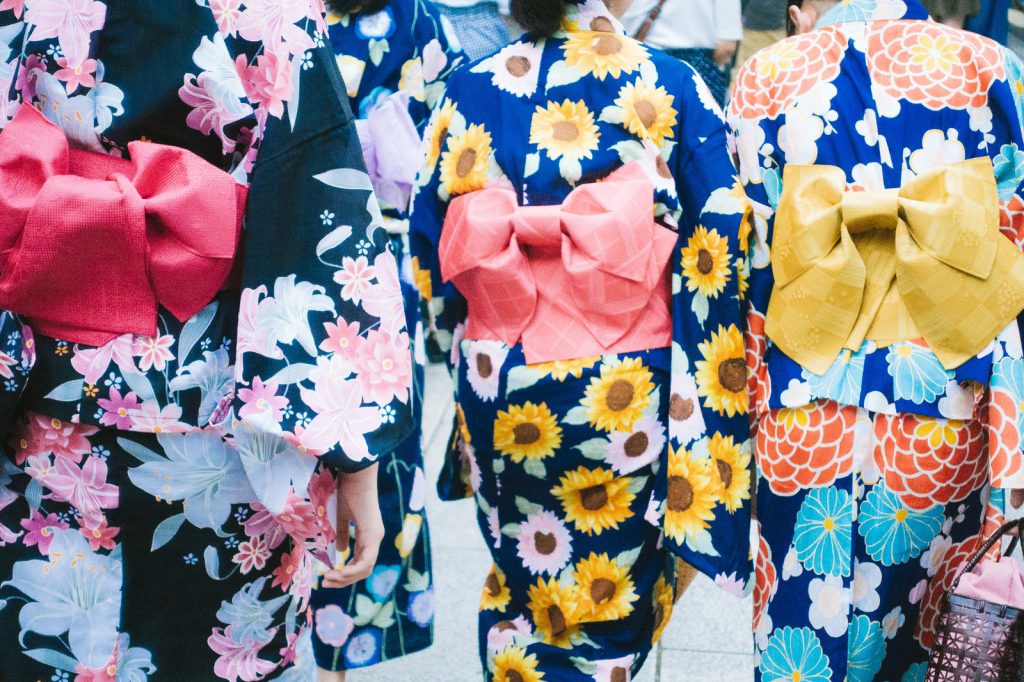
I repeat, it’s not that hard to wear a yukata so if you’re interested, bringing a yukata back to your country could be a good souvenir. The cost of yukata including items really depends on quality. It’s like a party dress. The benchmark is from ¥15,000 ($137) in total.
Looking for a yukata with cheapest price? My advice is going to a second-hand shop (リサイクルショップ) such as Hard off (in some shops, they don’t sell clothes). Because it’s second-hand, some people don’t want to buy there and also there is no guarantee that you can find your ideal yukata which suits your size. However, this is actually my foreigner friend told me that it’s super cheap even around ¥500-1,000 ($5 – 9). In general, Japanese second-hand shops sell things in good condition so if you’re looking for a yukata as cheap as possible, why not second-hand shop? If you go there, try to find a shop which includes ‘mega (メガ)’ or ‘plus (プラス)’ where many items are sold.
To end, I must tell you that just looking for a cheap yukata isn’t always a good idea. Like a party dress, if you buy a cheap yukata, it’s kinda of pity to see. In general, the cost is in proportion to the quality. If you choose a bad yukata in a way, it makes you poor, not elegant.
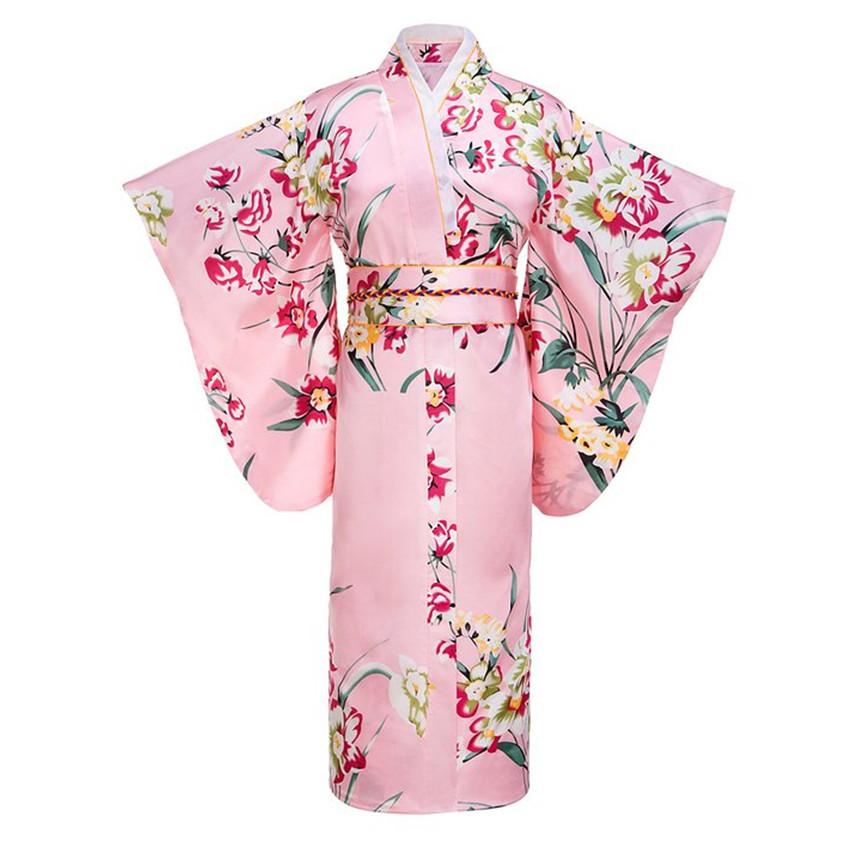
These years in Japan, I notice that yukata for tourists only, not for Japanese (because we know it’s super fake) are sold on purpose. This makes my heart hurt. If you look for a traditional yukata, please ask yourself if it’s elegant. Also, check the yukata pattern. If it’s not Japanese traditional patterns, it could be one you are looking to avoid.
MAKING YUKATA
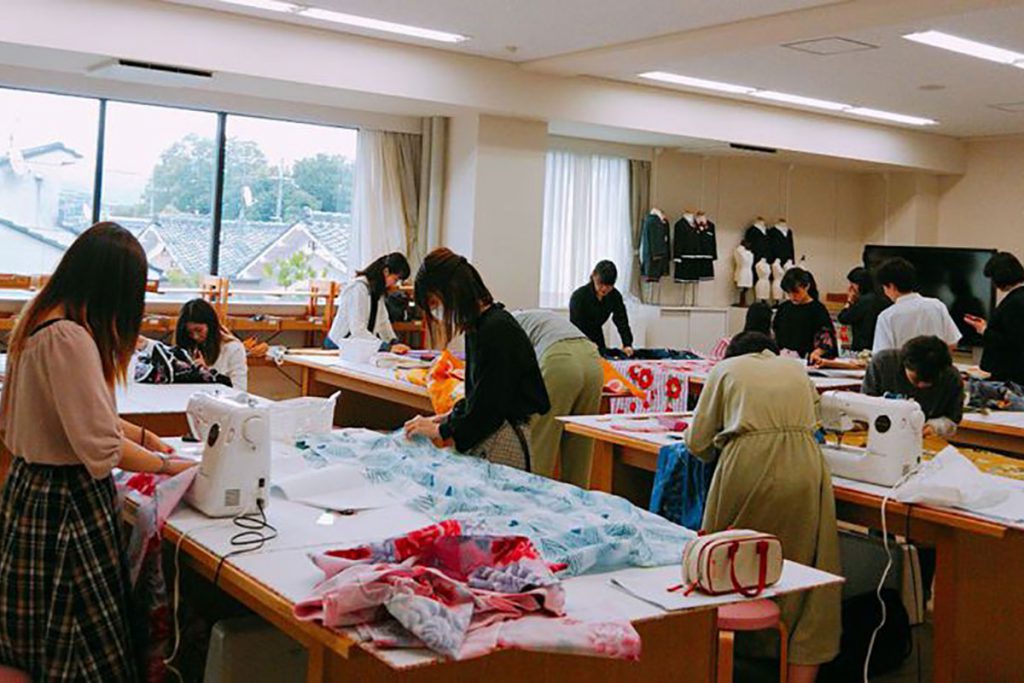
Making yukata
Actually, my mom has a certificate for kimono making, therefore, she can make kimono and yukata. I found that many foreigners would like to make yukata so I asked her how to make it. She simply answered “If someone wants to make a perfect traditional classy yukata, first you need to take a lesson to learn. Even an expert needs more than one week to make one yukata.” In conclusion, if you want to get a very traditional yukata, you’d better buy one, instead of making it.
If you really want to learn to make yukawa, you can take course. In general, they are only held during a limited season, usually around June and July. I could only find lessons held in Japanese, so if you’re unfamiliar with the language, it may be very hard. In addition, yukata making courses last several lessons, and cost from ¥16,000 ($146).
YUKATA FOR SALE AT UNIQLO OR RAKUTEN
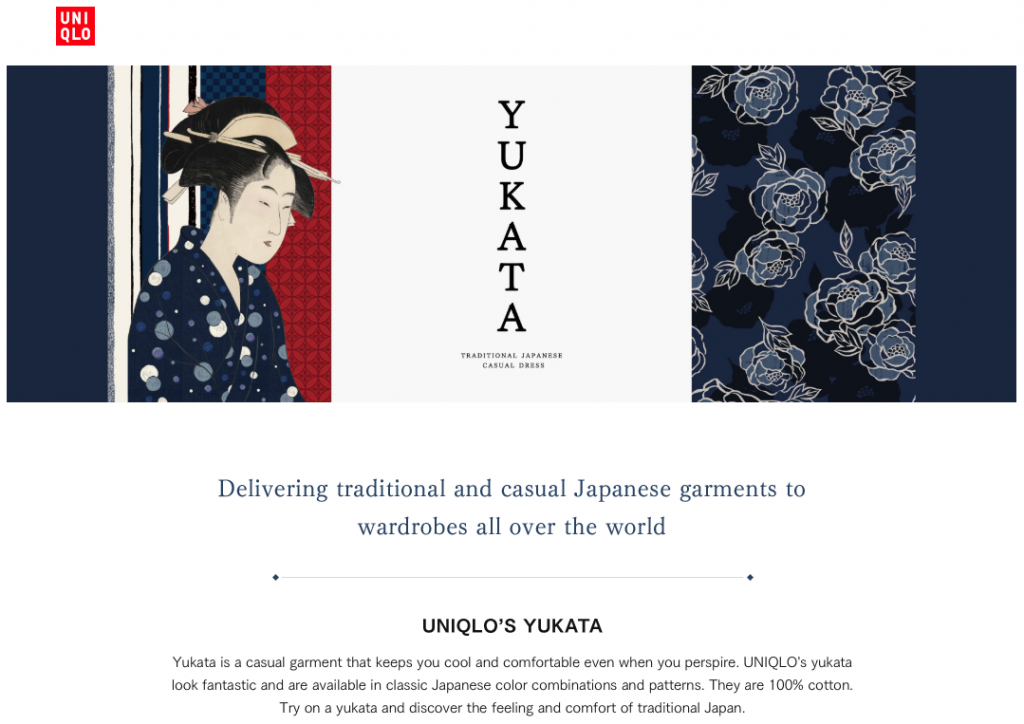
f you’re looking for a real yukata on the internet, then UNIQLO is where you can find it in (most of) the rest of the world! I can assure you that yukata at UNIQLO looks perfectly like those you find in Japan. If you want to get a yukata at UNIQLO, please go to the shop to find one!
*I think UNIQLO sell yukata only in summer.
On the other hand, Rakuten Global Market also sells many different patterns of yukata. Rakuten (楽天) is a huge, huge Japanese company like Amazon where you can find everything you want.
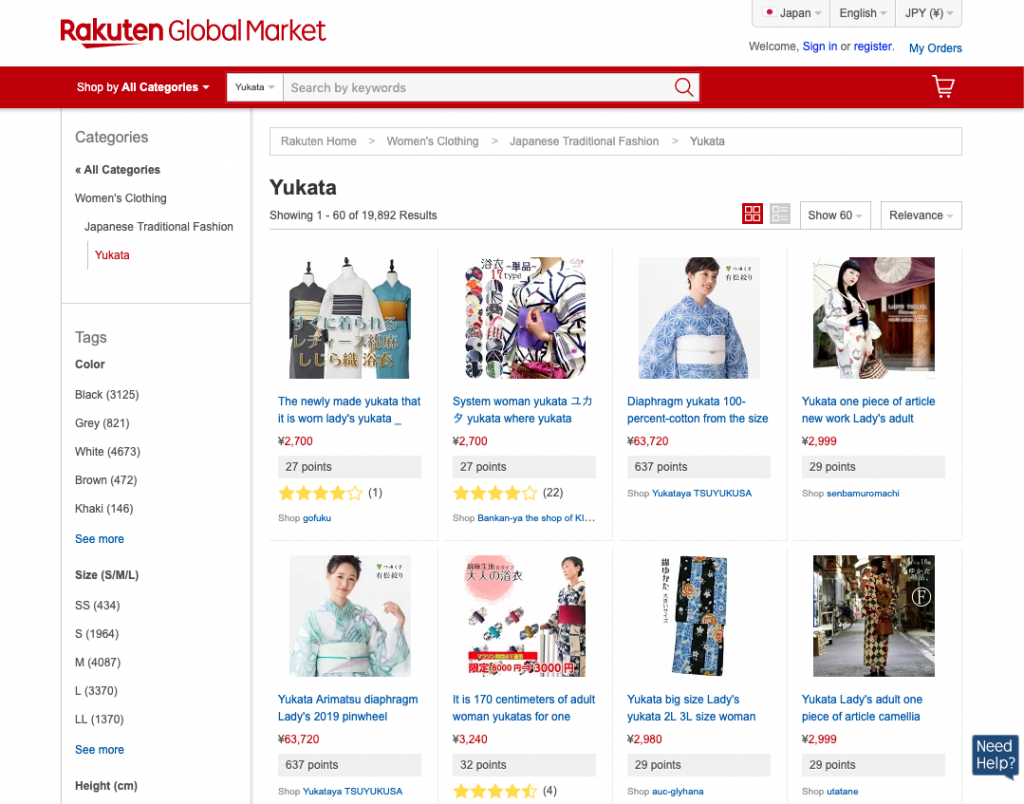
Although you can find various yukata at Rakuten, one thing I must warn you is to please check the rates of shops or items before buying. In general, those who sell something on Rakuten, they are examined so you don’t have to worry about buying anything at Rakuten. However, like Amazon, I’d say, some items could be less quality and it may make you disappointed. I repeat, please check out the rates AND comments before buying yukata.
THE SIZE OF YUKATA
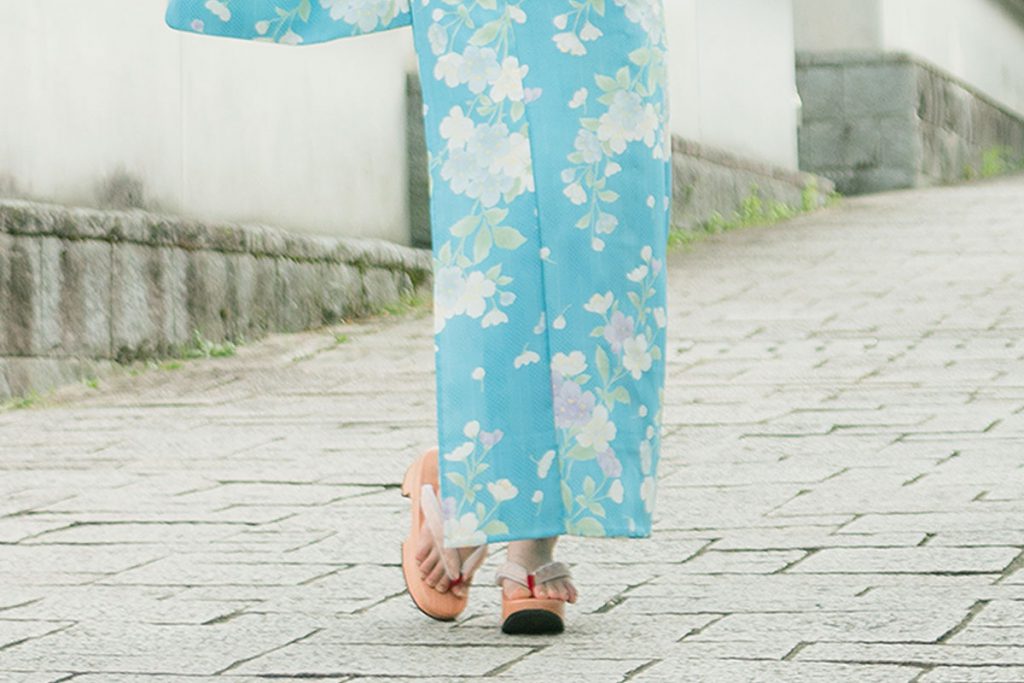
No width limit for yukata doesn’t mean there is no size. There are various sizes in fact. In general, the size of yukata depends on your height. Me because I’m super tall, 173cm, in Japan, it’s a bit hard to find a yukata for my height. However, if I wear kimono which is shorter than expected, it’s no more elegant but horrible. Normally, you can check the suitable height for each yukata so please make sure to find a yukata of your size.
SET HAIR FOR YUKATA
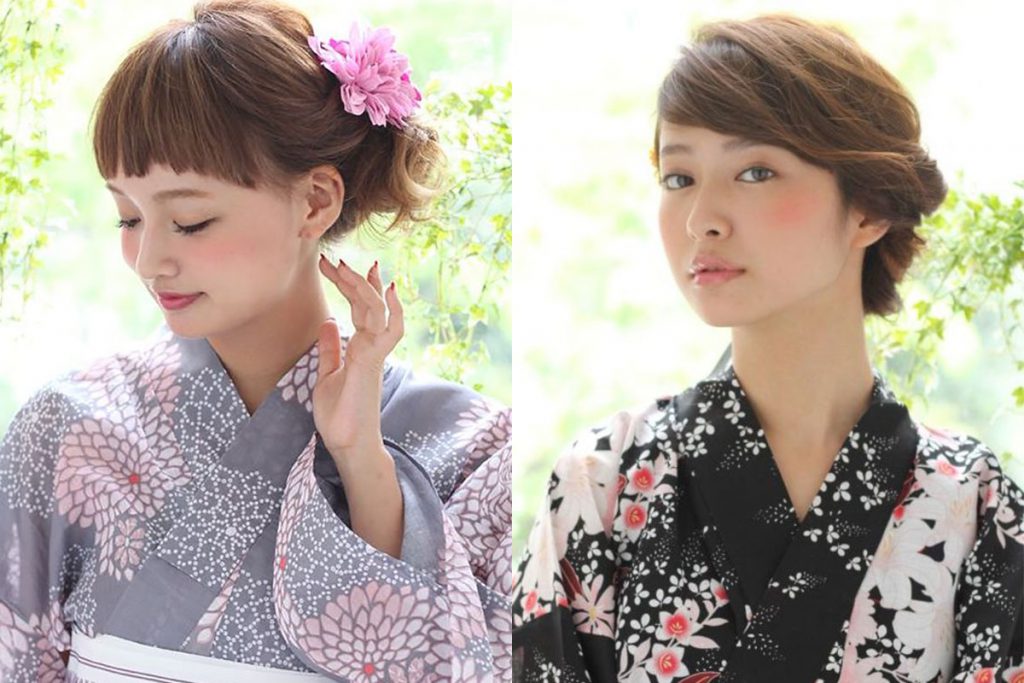
As with kimono, wearing your hair up is considered the best hairstyle for yukata. At many yukata shops, you can ask to have your hair done, so if you’re not sure what to do, ask the hair stylist. Decoration could be a fashionable accent.
YUKATA SEASON
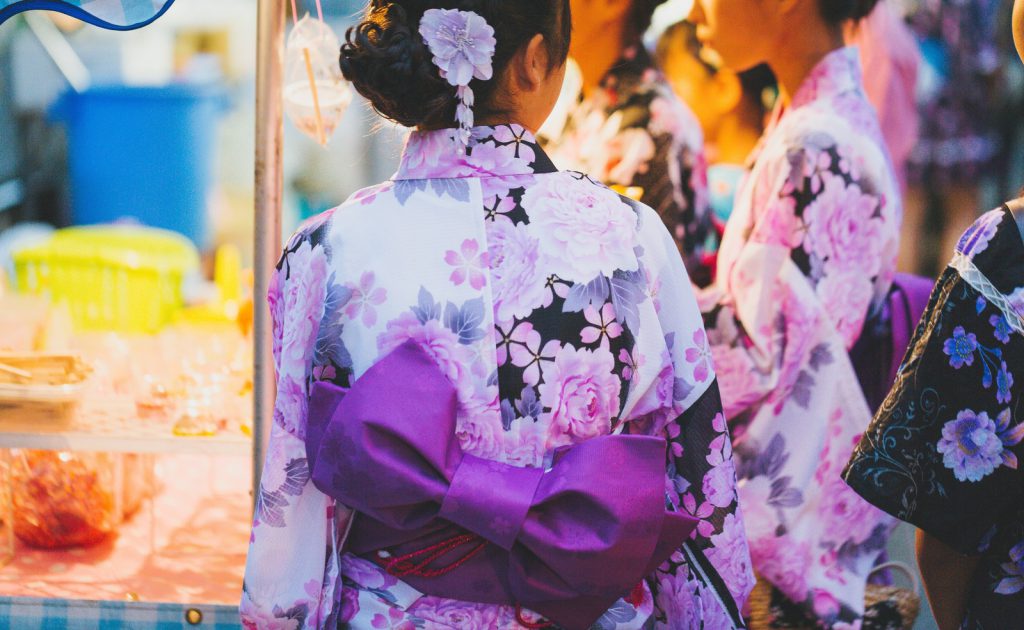
I‘ve already informed you but yukata is used only in summer therefore even if you want to wear yukata in other seasons, you can’t even rent it. In general, it starts in June and lasts until the end of September.
BAND-AID FOR GETA
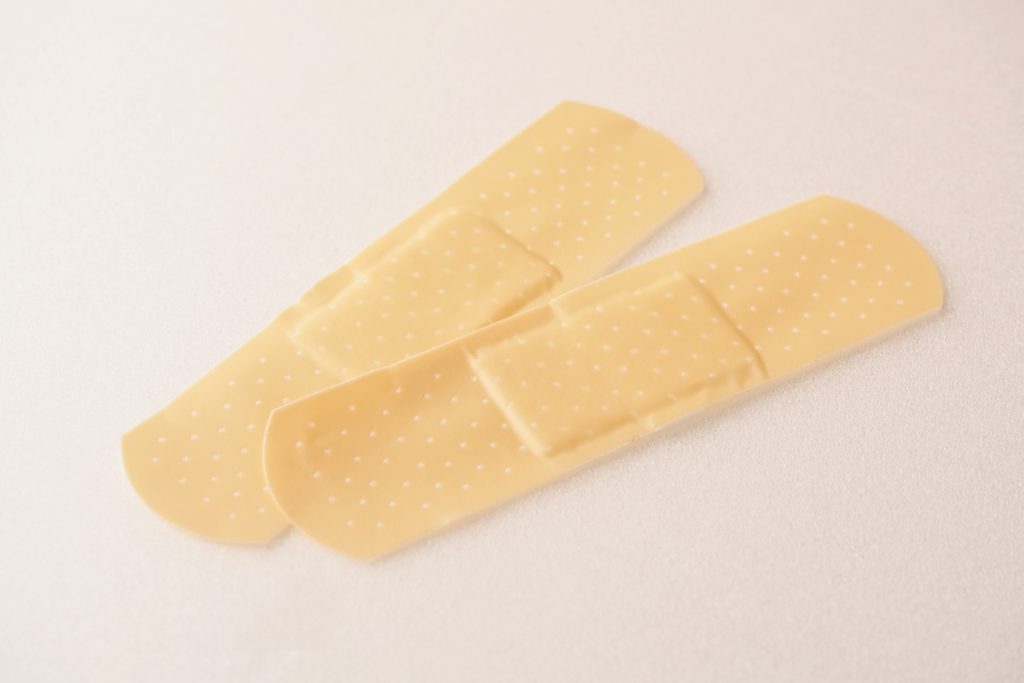
I know many foreigners would like to buy geta. As I mentioned, it’s kind of compulsory to wear geta for yukata, but in general, we don’t get used to wearing them. So me, I always bring band-aid in case. I’d say, almost 100% of the time, I ended up needing the band-aid to protect my feet toes while wearing yukata.
WEARING YUKATA IS ATTRACTIVE
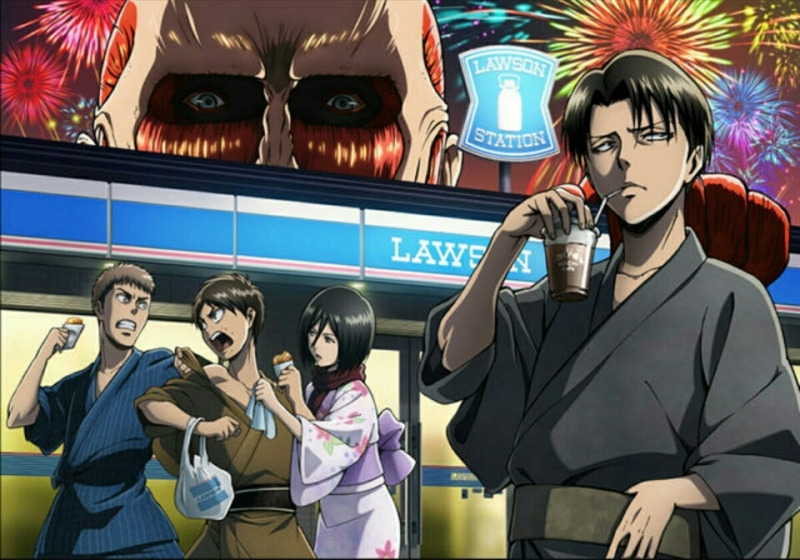
Wearing yukata is pretty attractive as I mentioned. This is the Japanese fashion trend which never ends. Like the image of Attack on Titan above, while there is no scene in the anime where the characters wear yukata, because the yukata style is something Japanese would like to see, this image was created.
By the way, if you like Attack on Titan, check out our article “Who’s Hajime Isayama? Here’s Why Attack on Titan Became One of The Best Manga“.
If you have a chance to wear yukata, do it! Yukata makes you very special like we Japanese think: Summer is coming? Why not wear yukata with friends or your significant other?

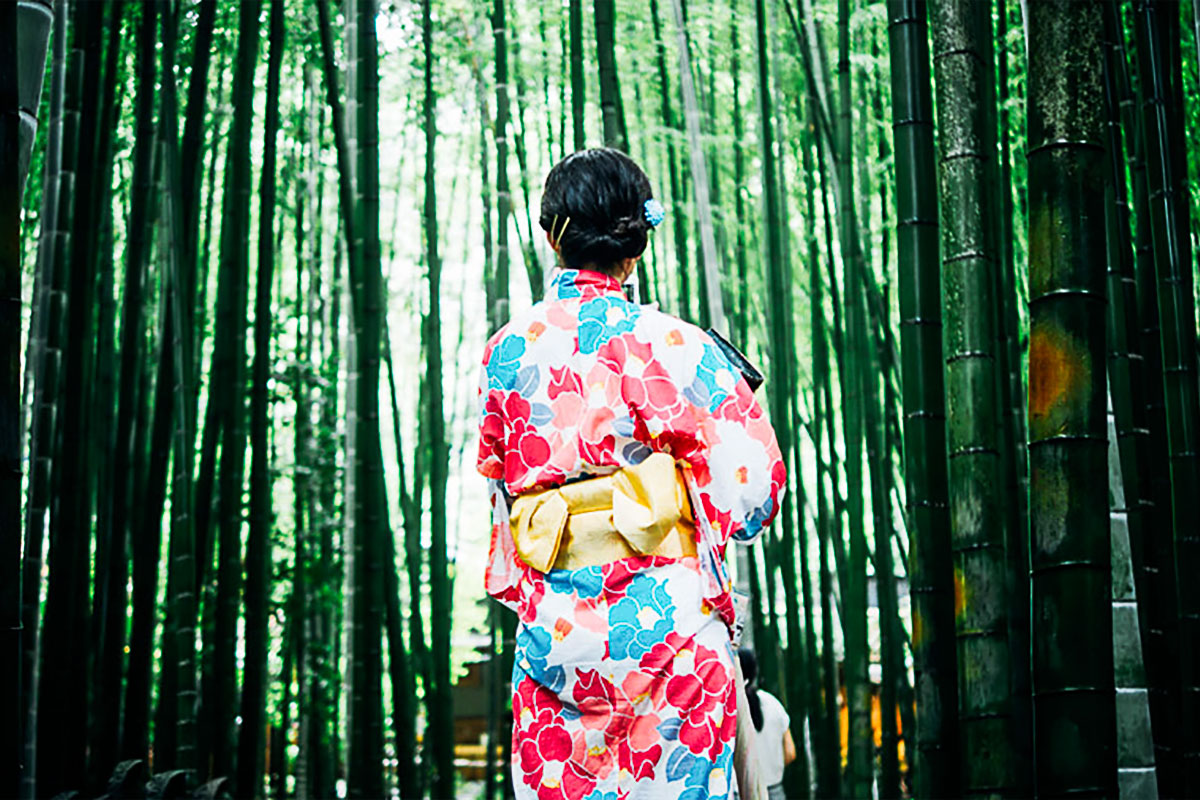
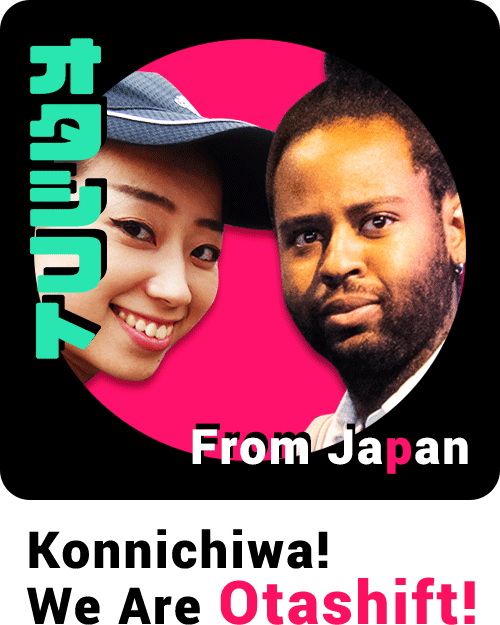

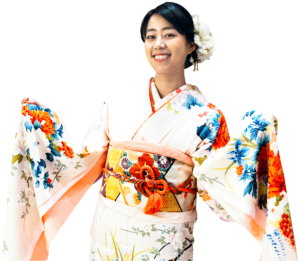
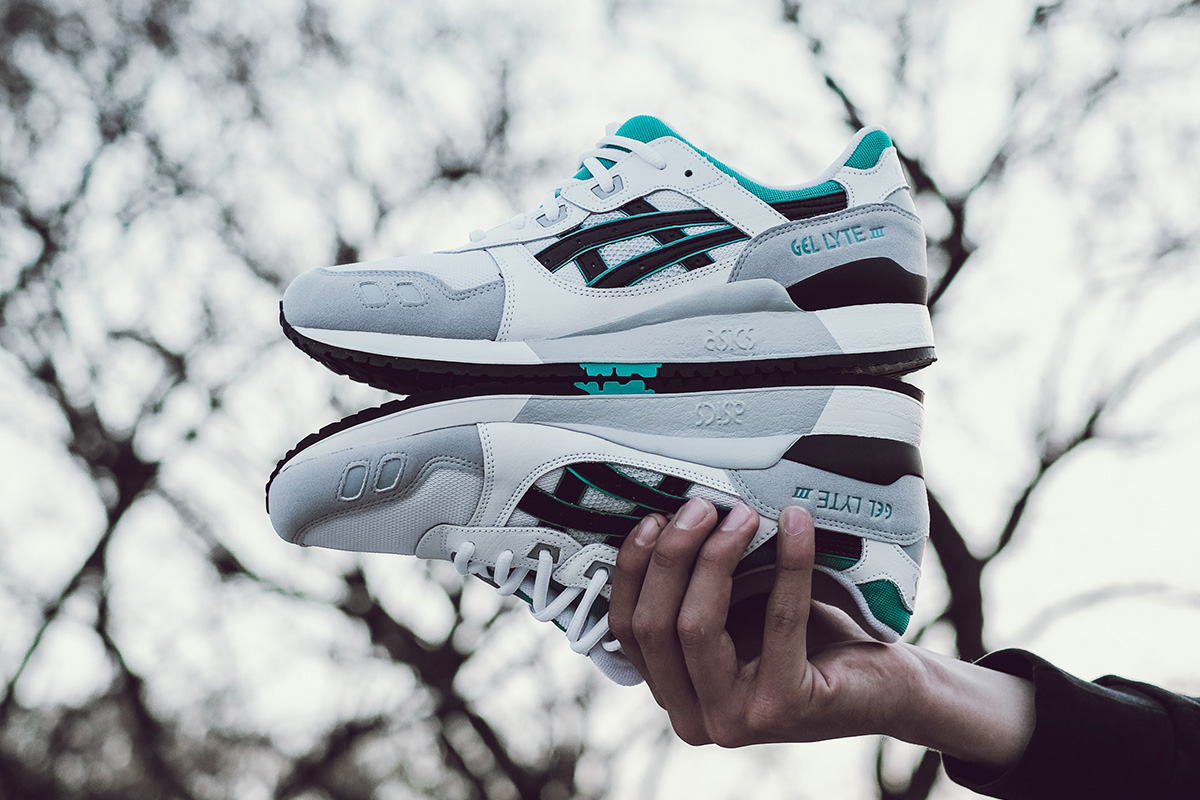
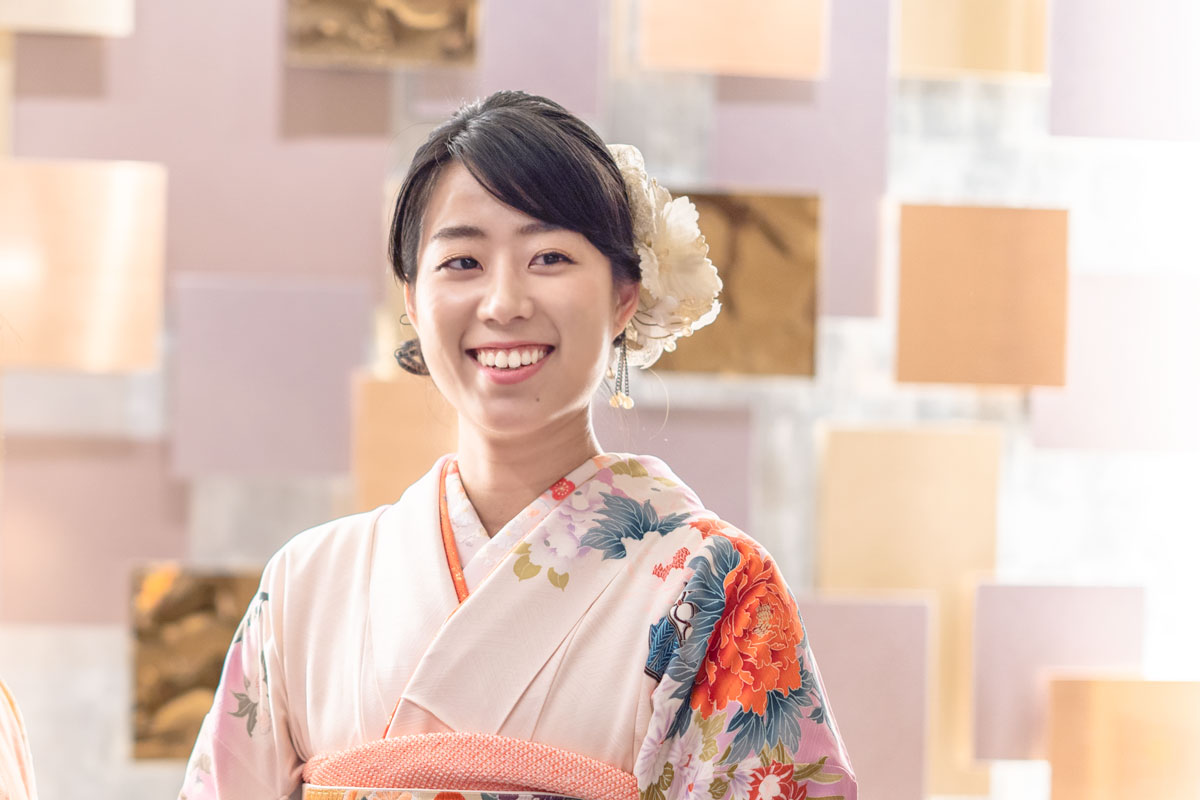
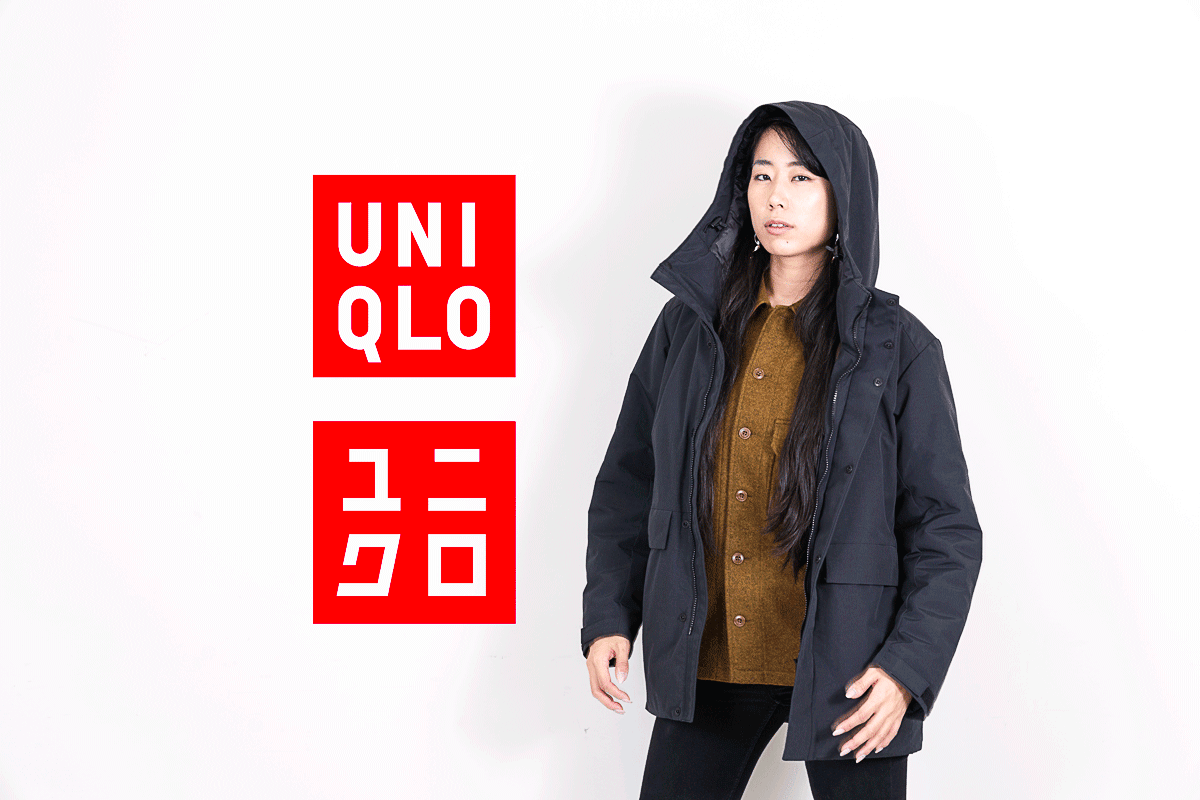
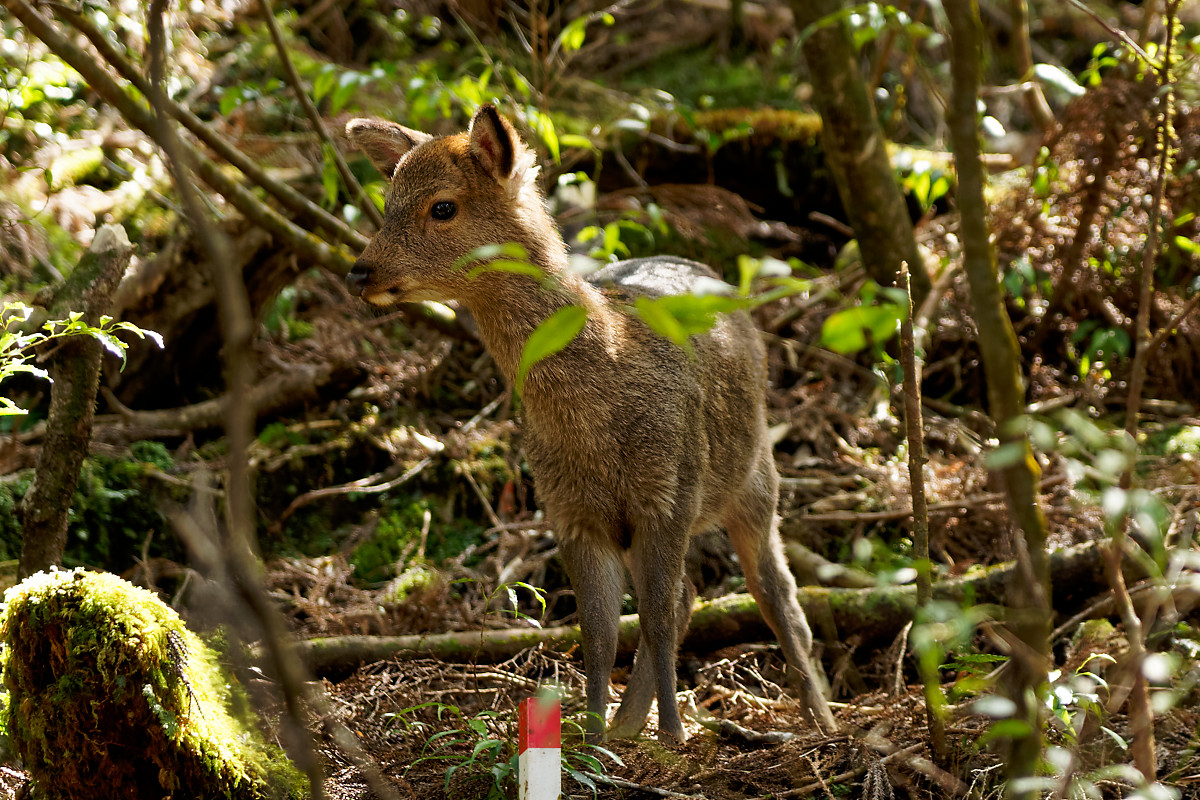

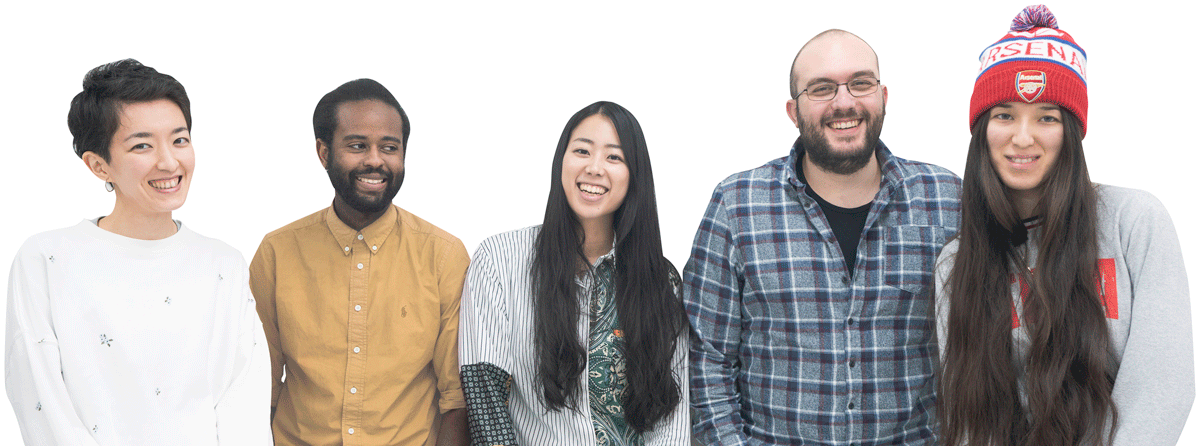
Thank you so much for this lesson! I do hope to go to Japan in the future, and I love all the different culture you find when you travel and in my experience, everyone is so excited to share their culture with you 🙂 As a tall incredibly white girl though, I worried about whether I would be “allowed” to wear one. I mean, obviously allowed, but you know, I don’t want to be seen as making fun of their culture or disrespectful. I’m so glad I learned about the patterns, and am going to keep the list of shop suggestions. Well, some day, when we’re allowed in other countries again. *sigh* I didn’t vote for him. Anyway, thank you, I enjoyed a lot!